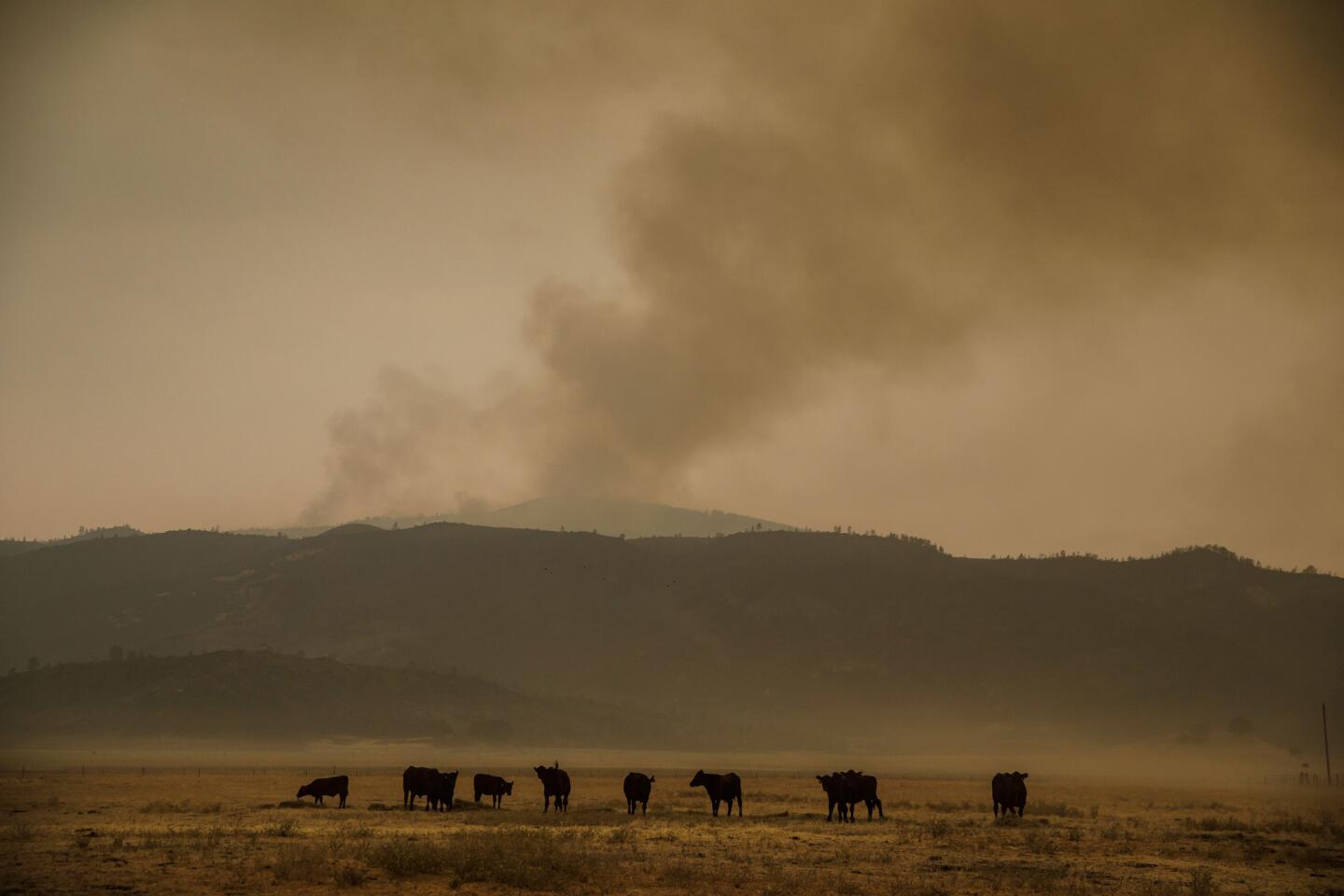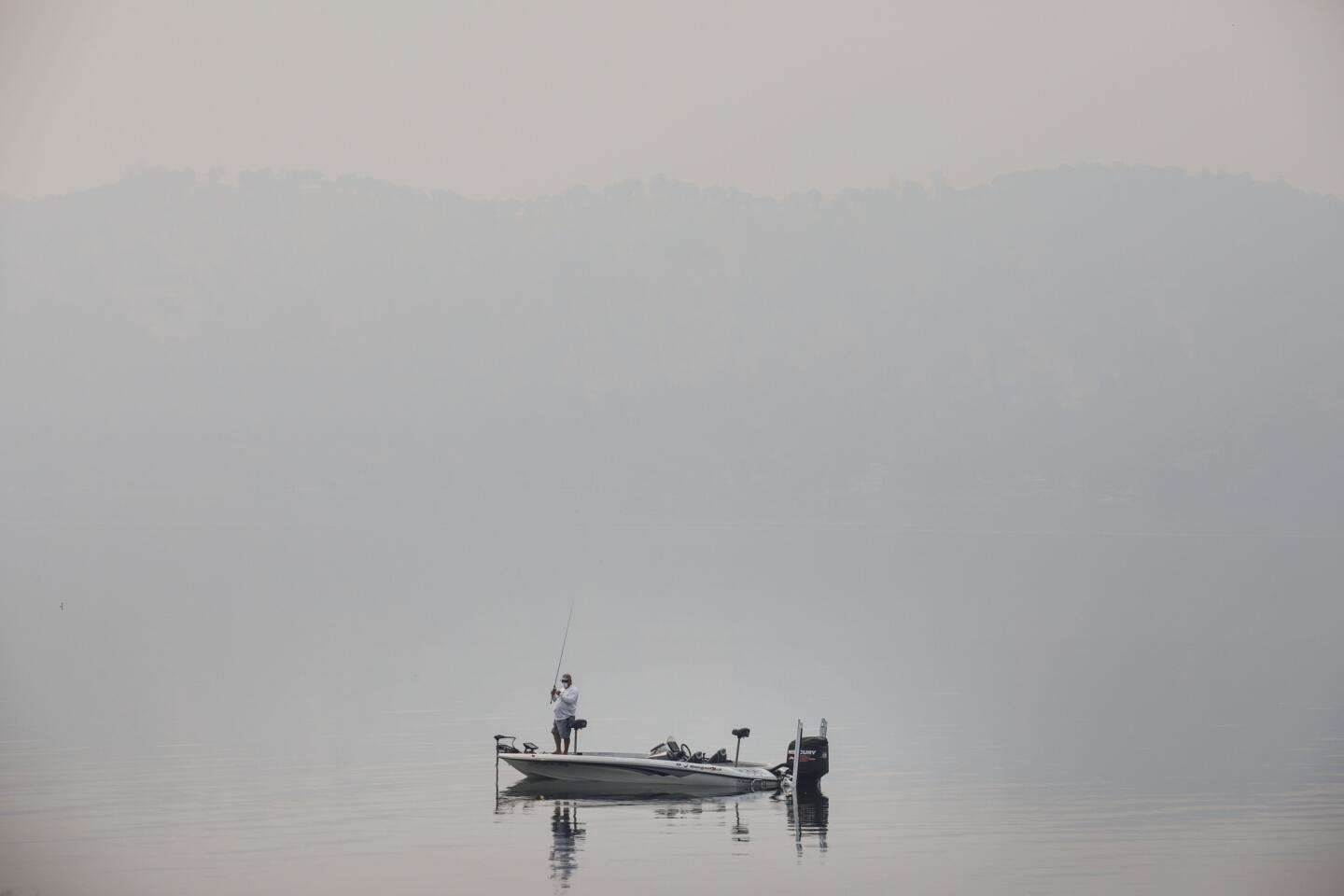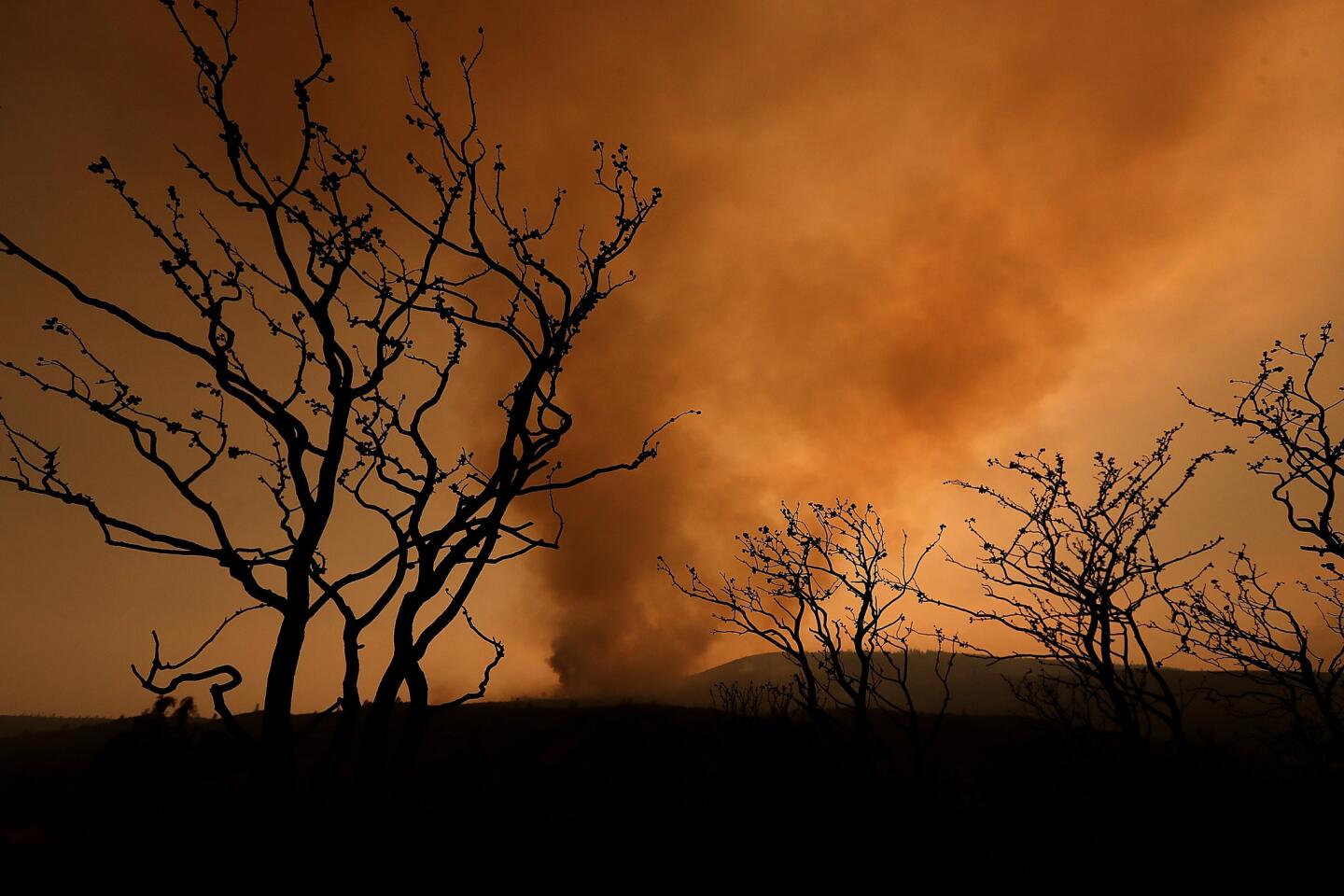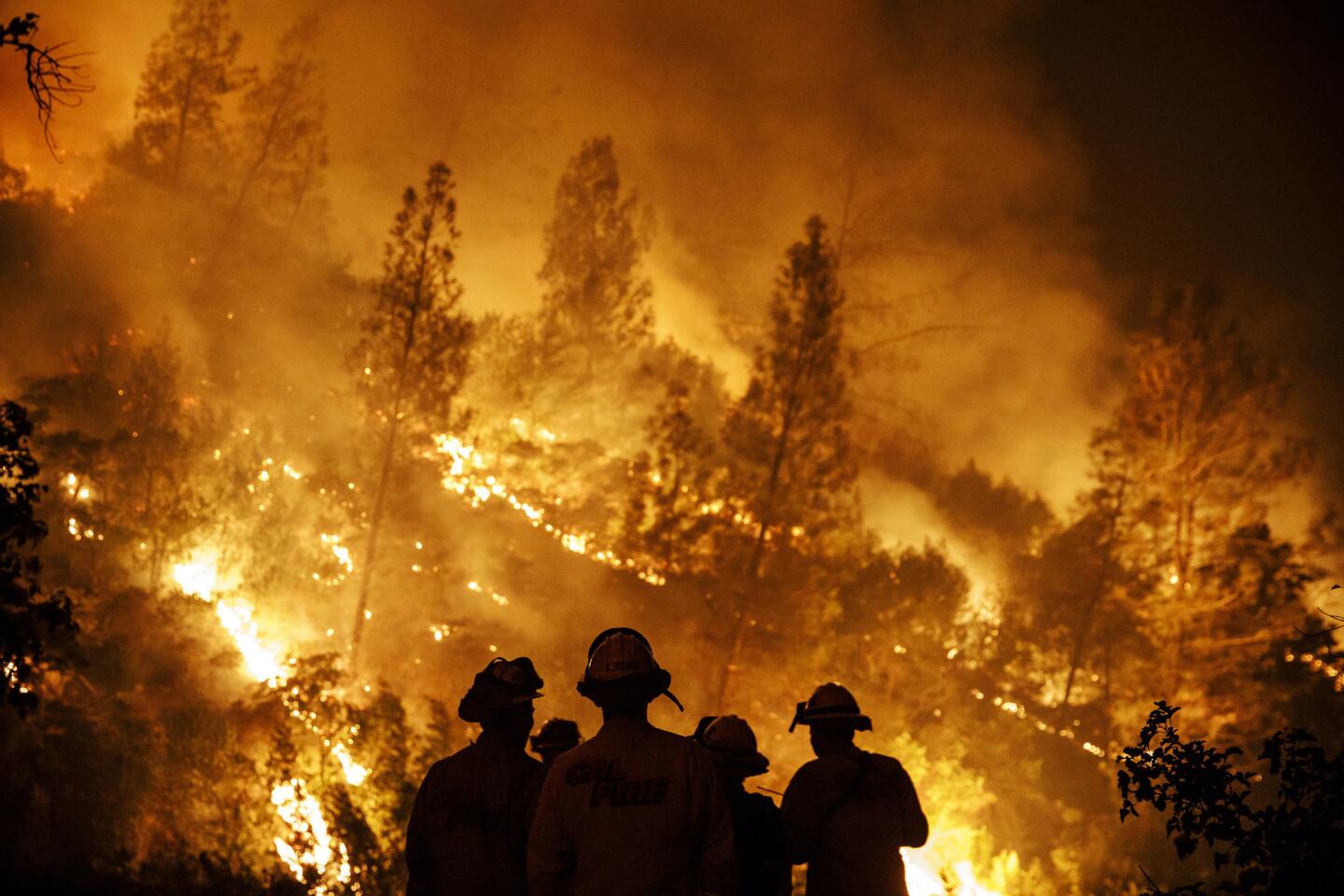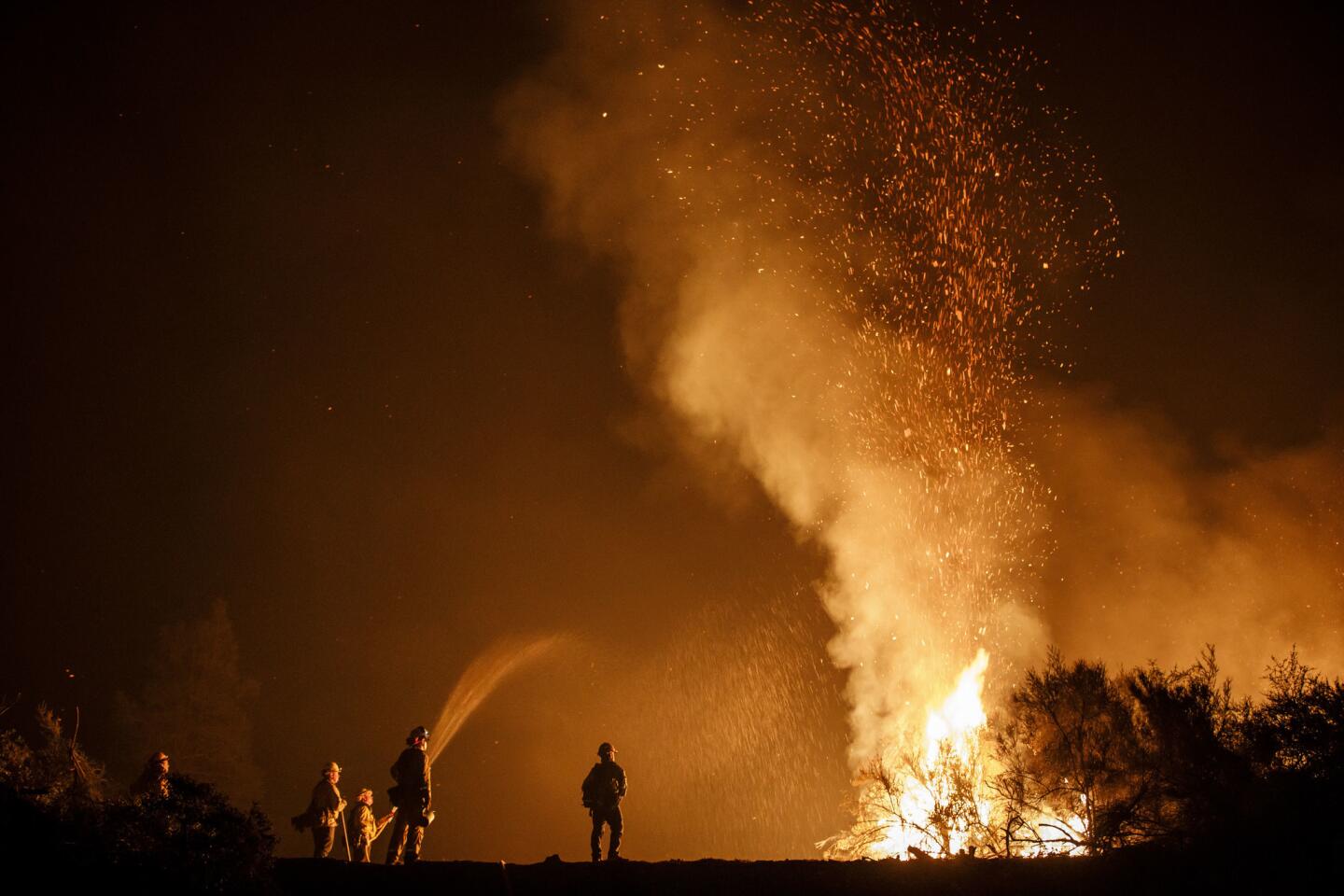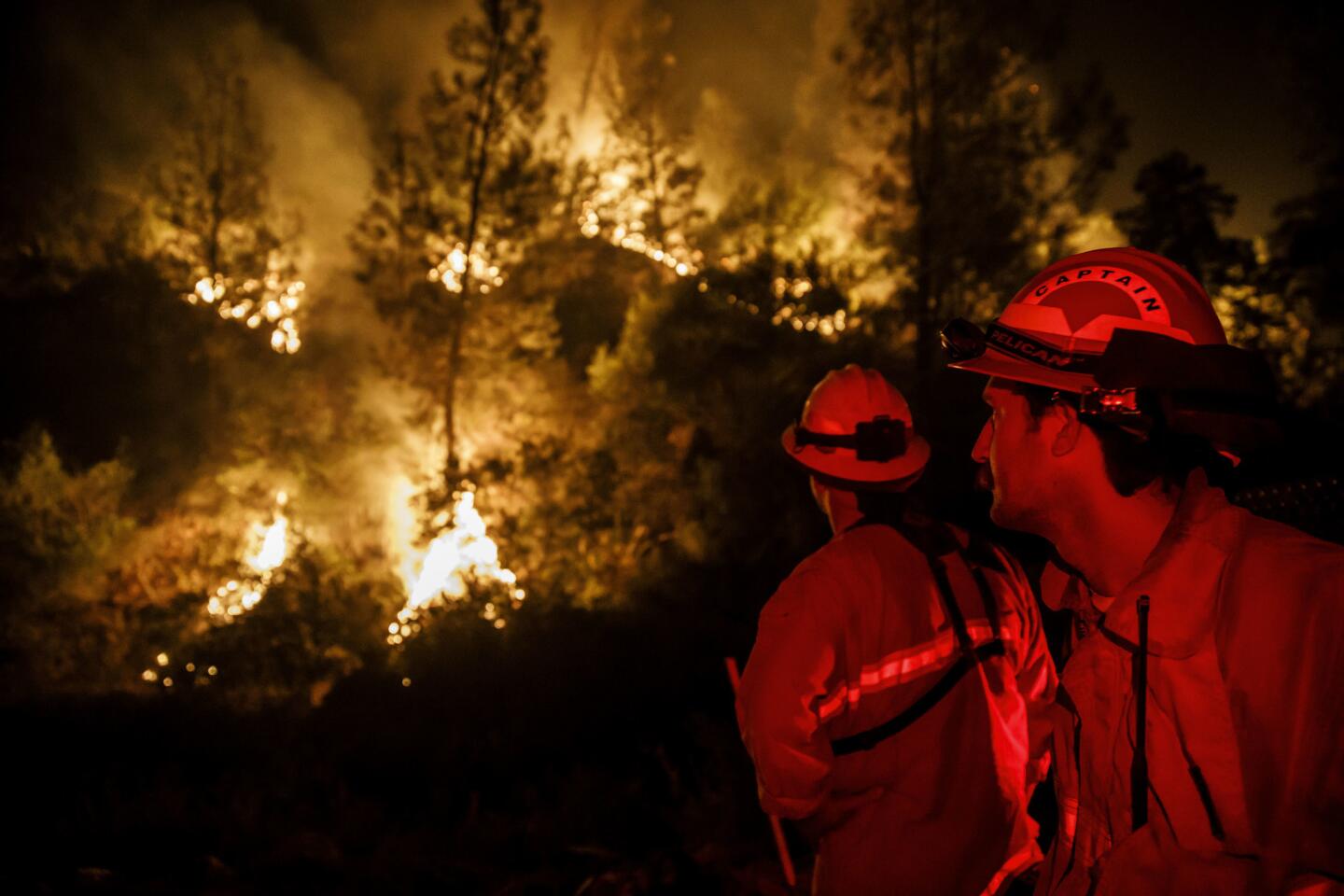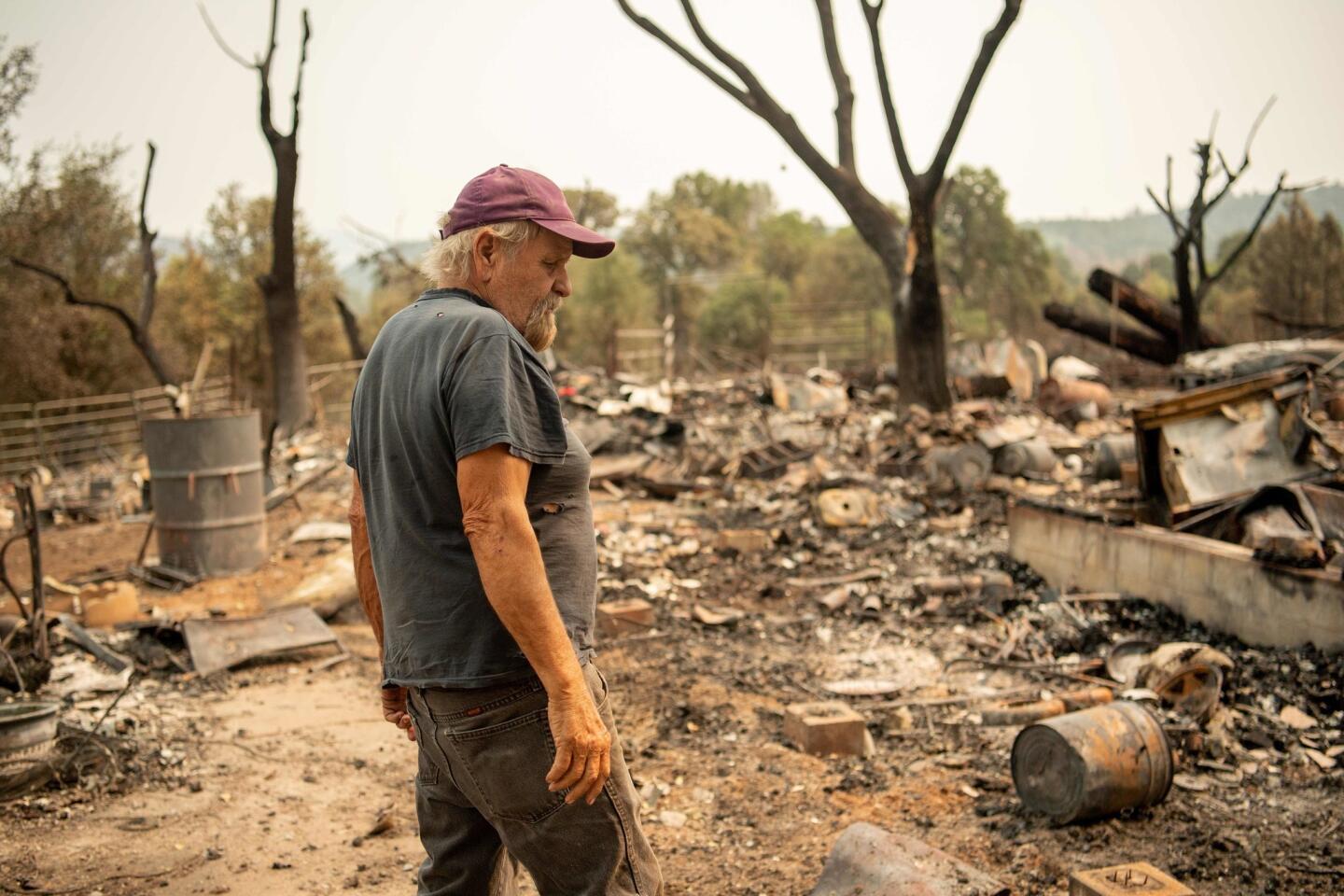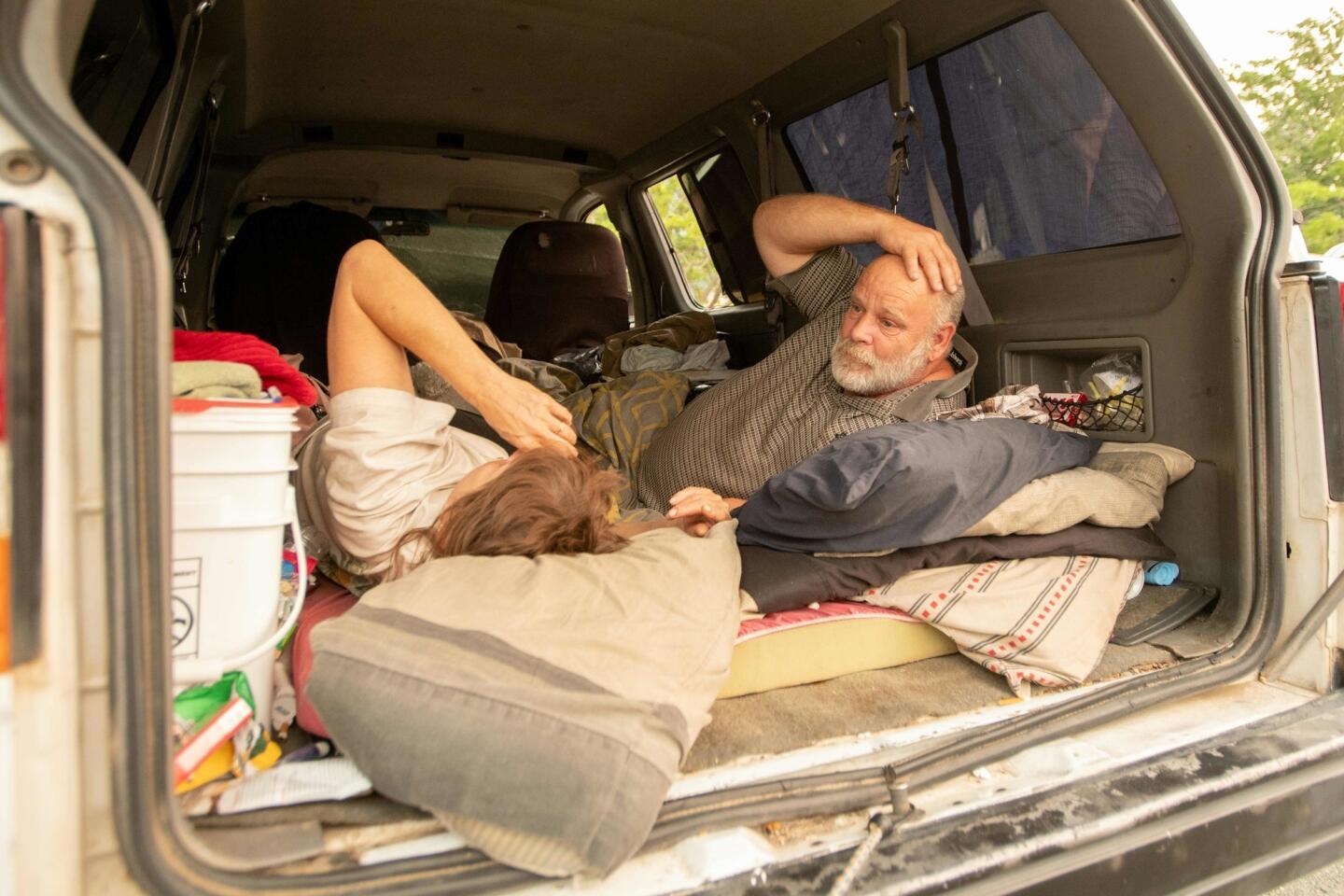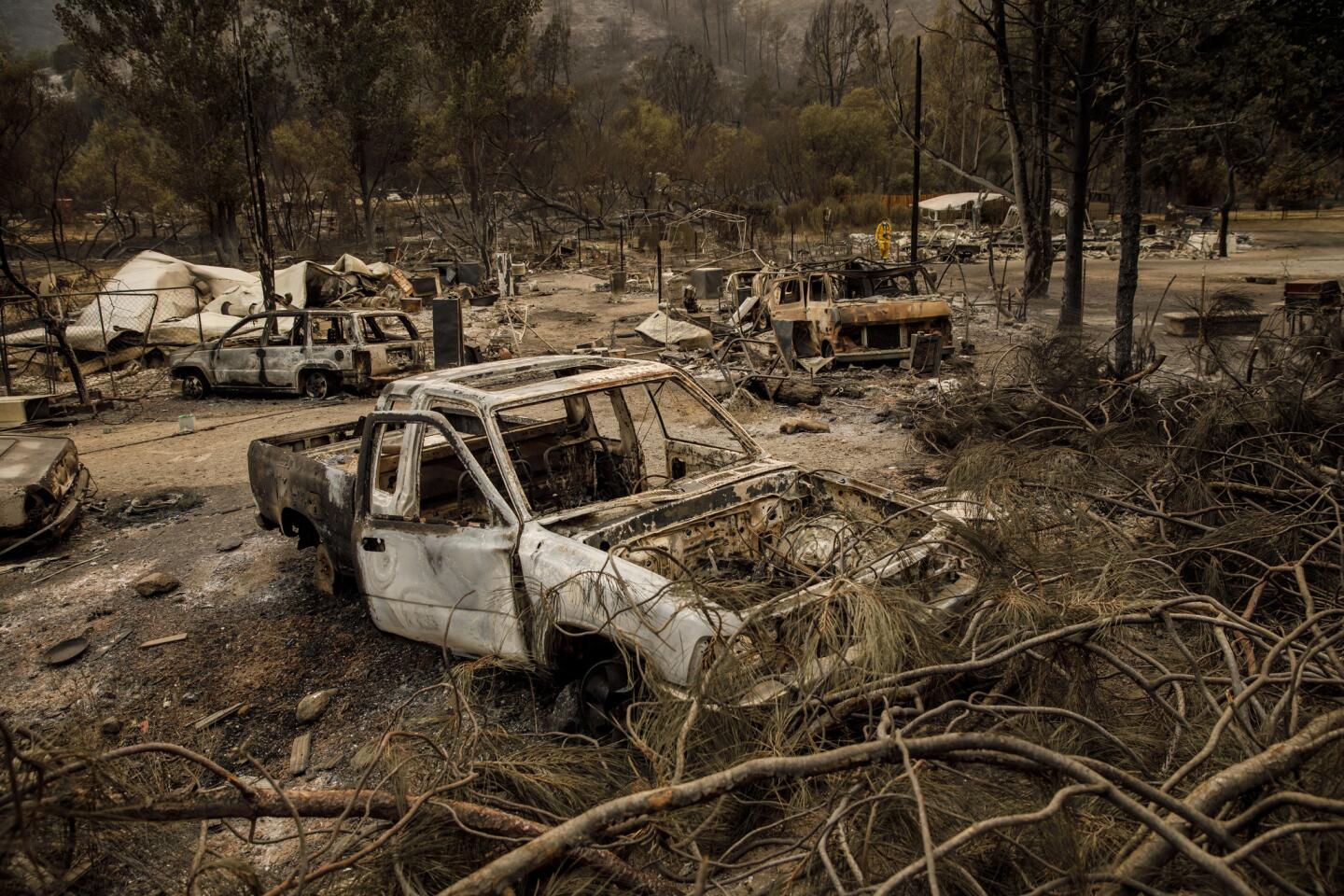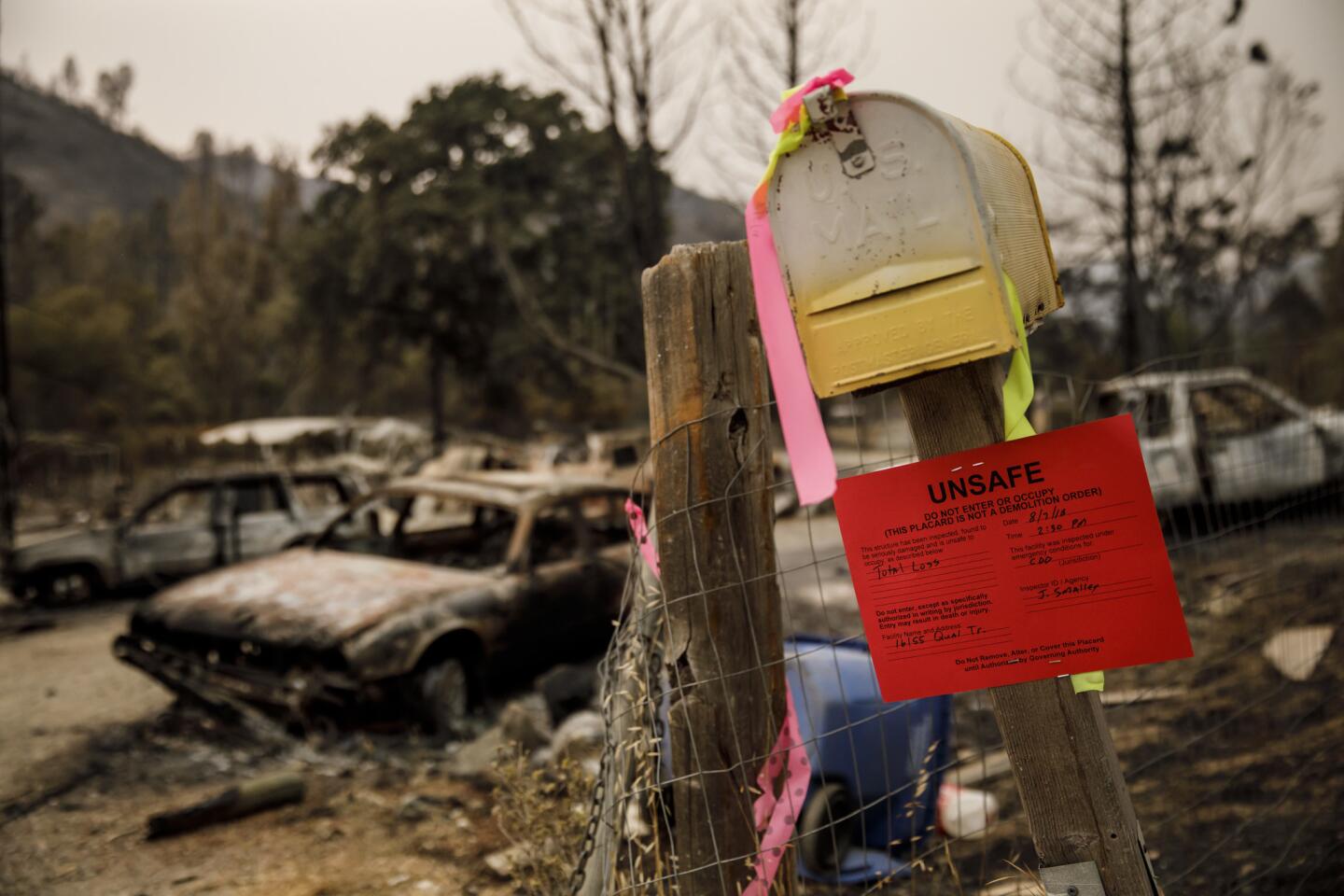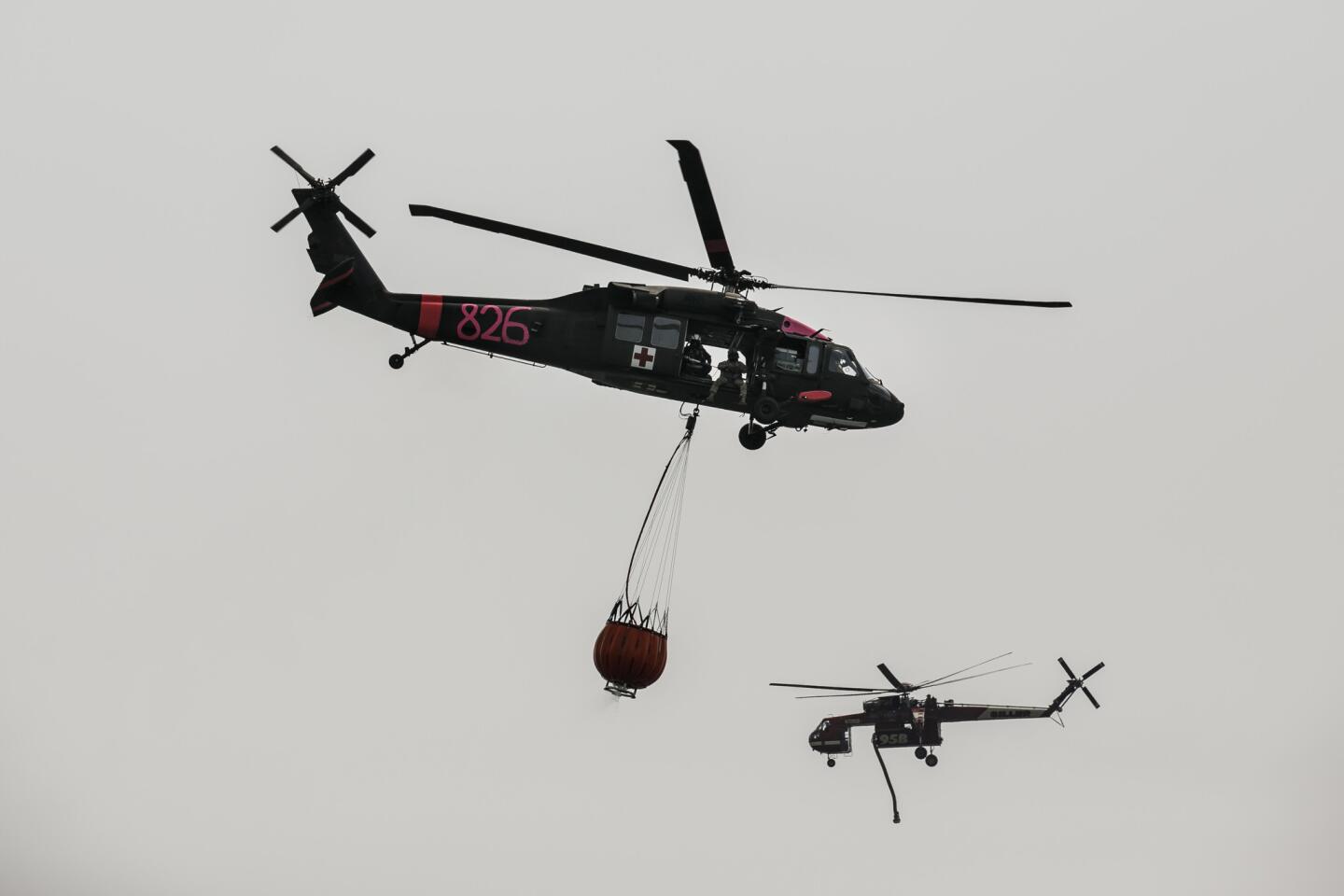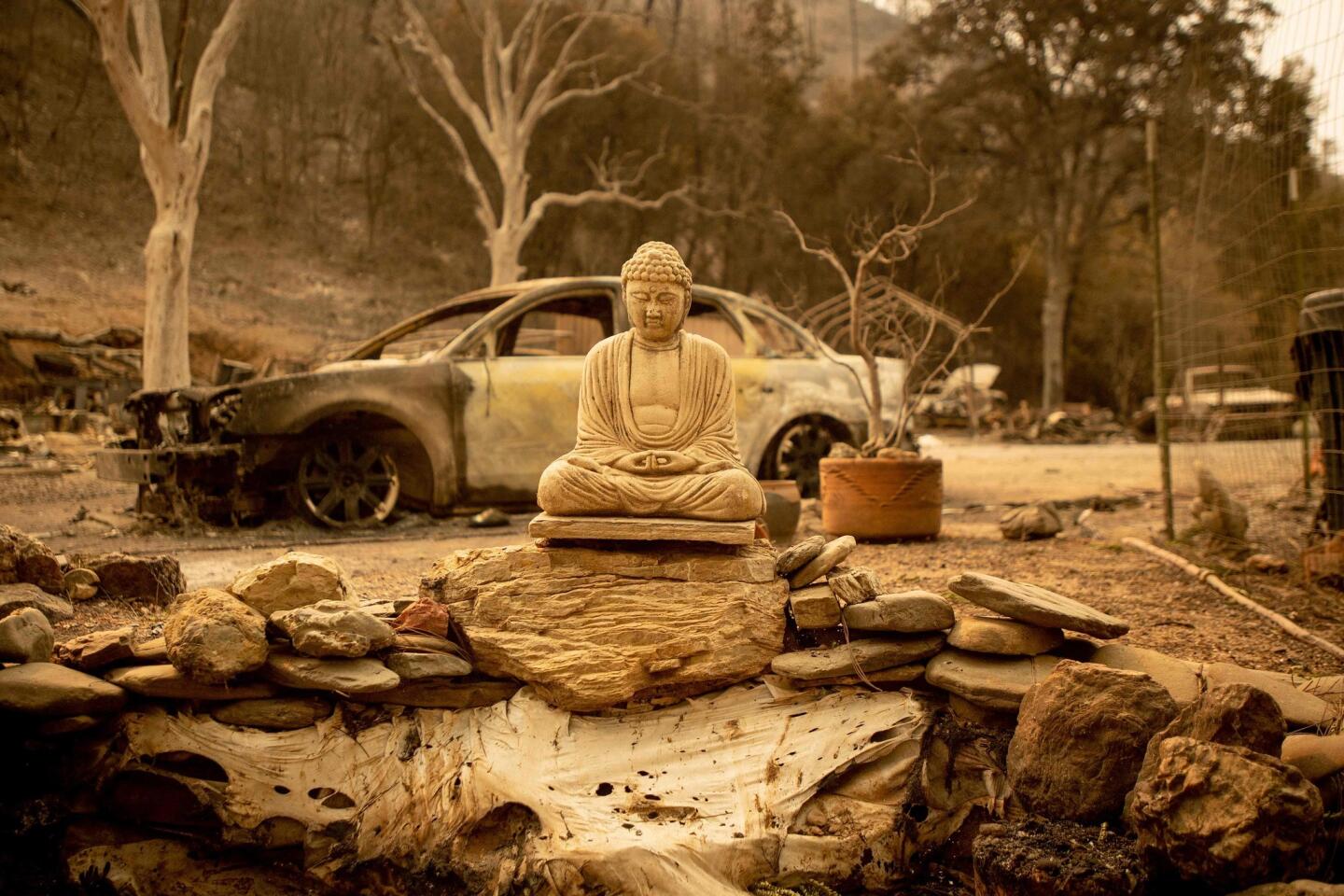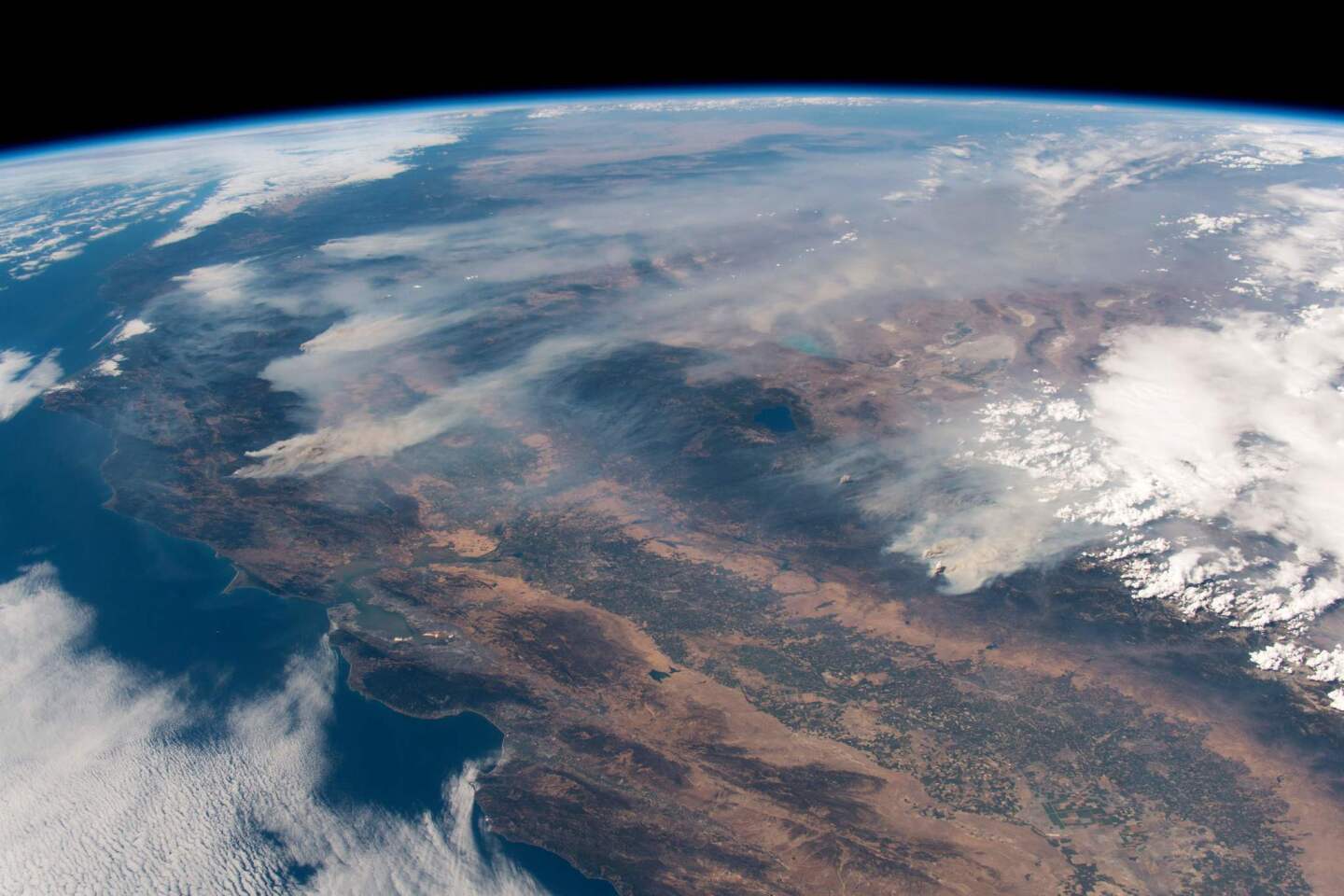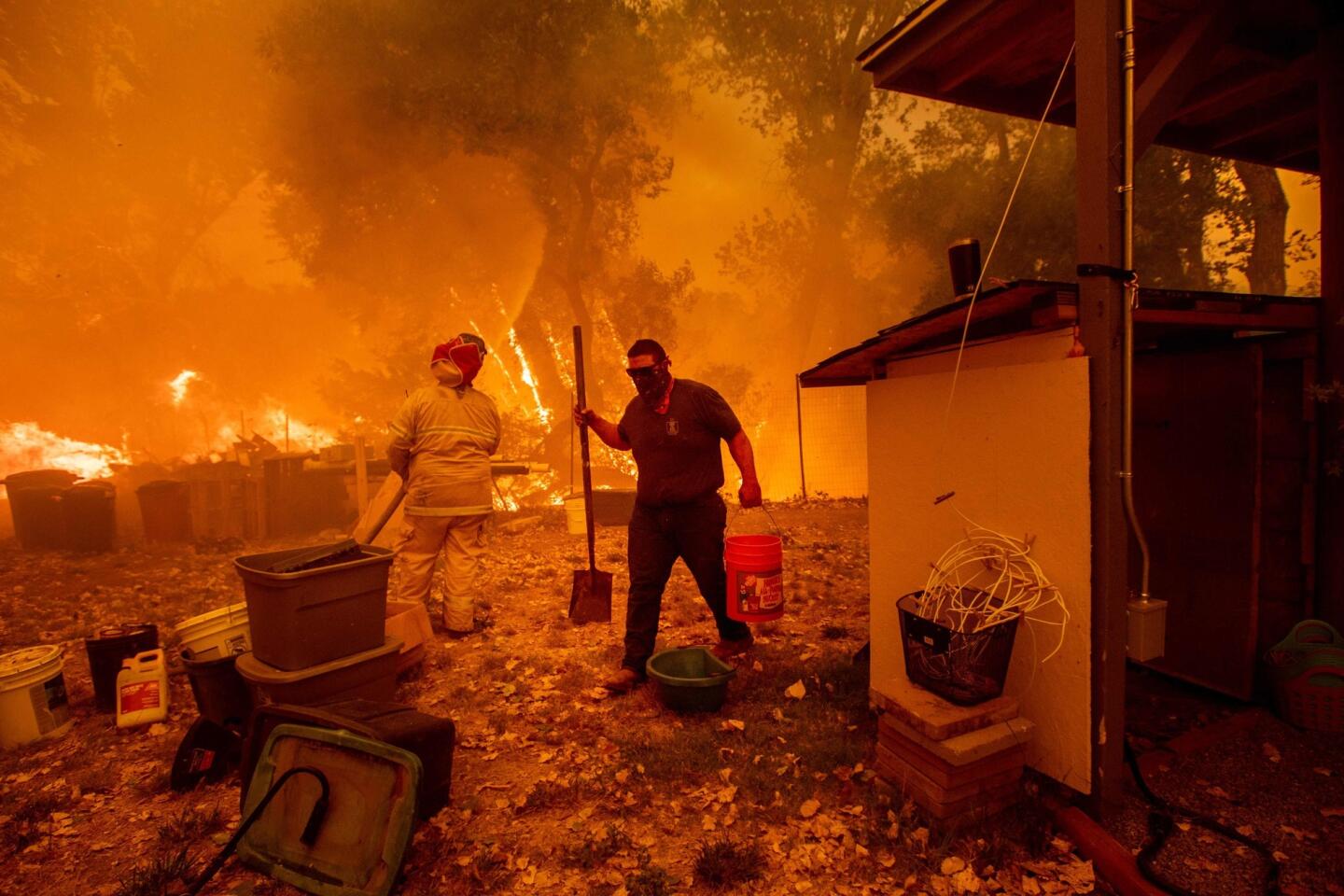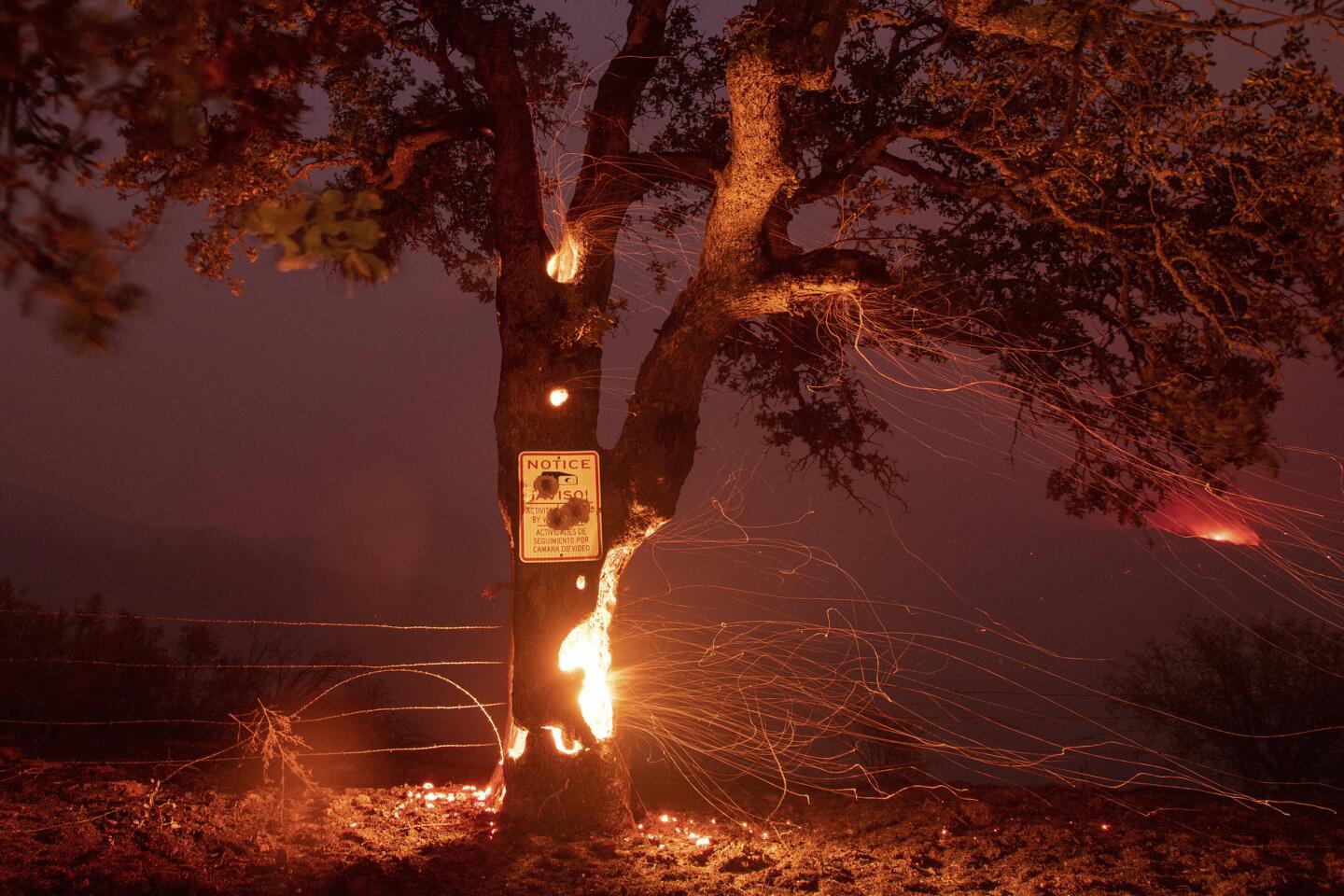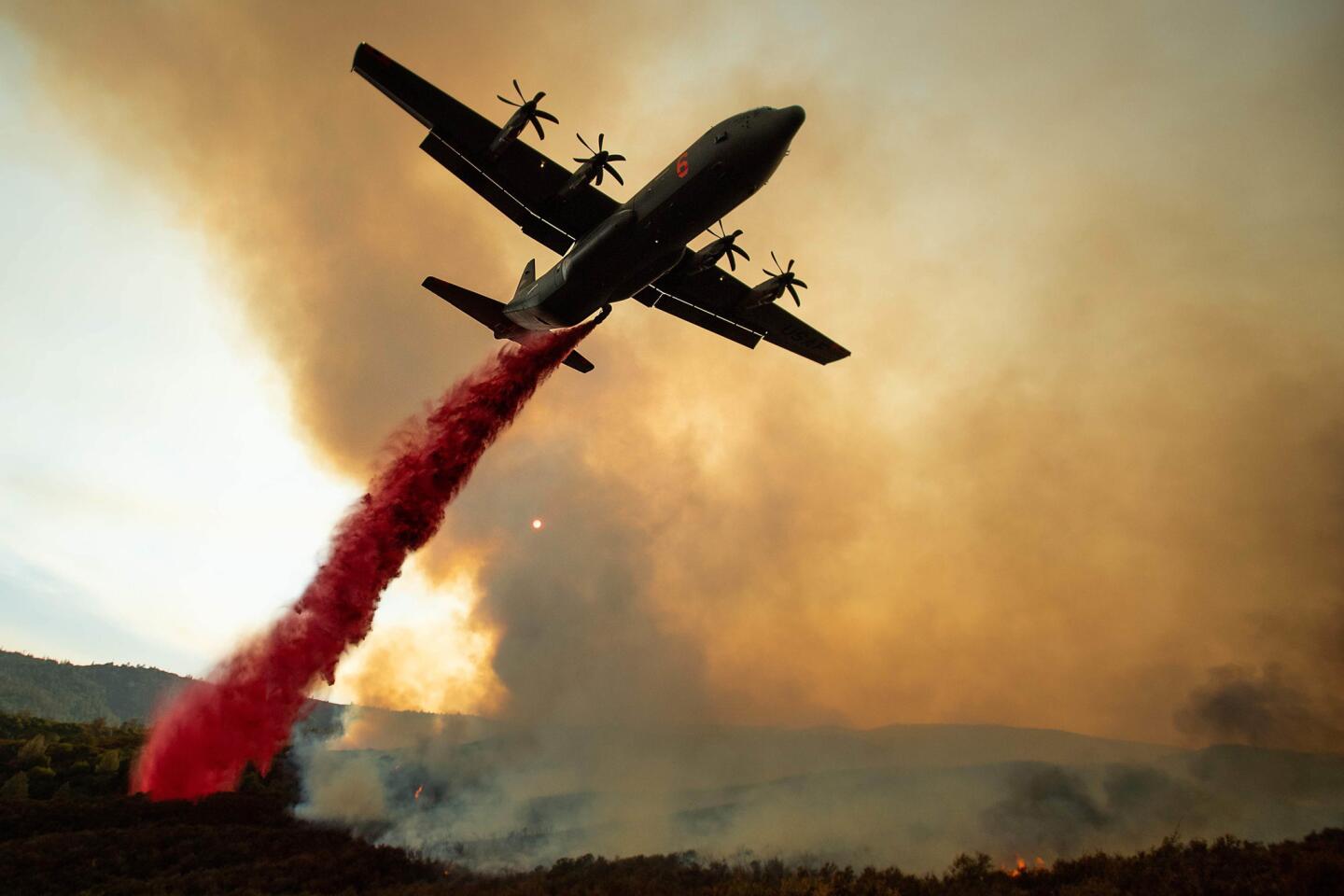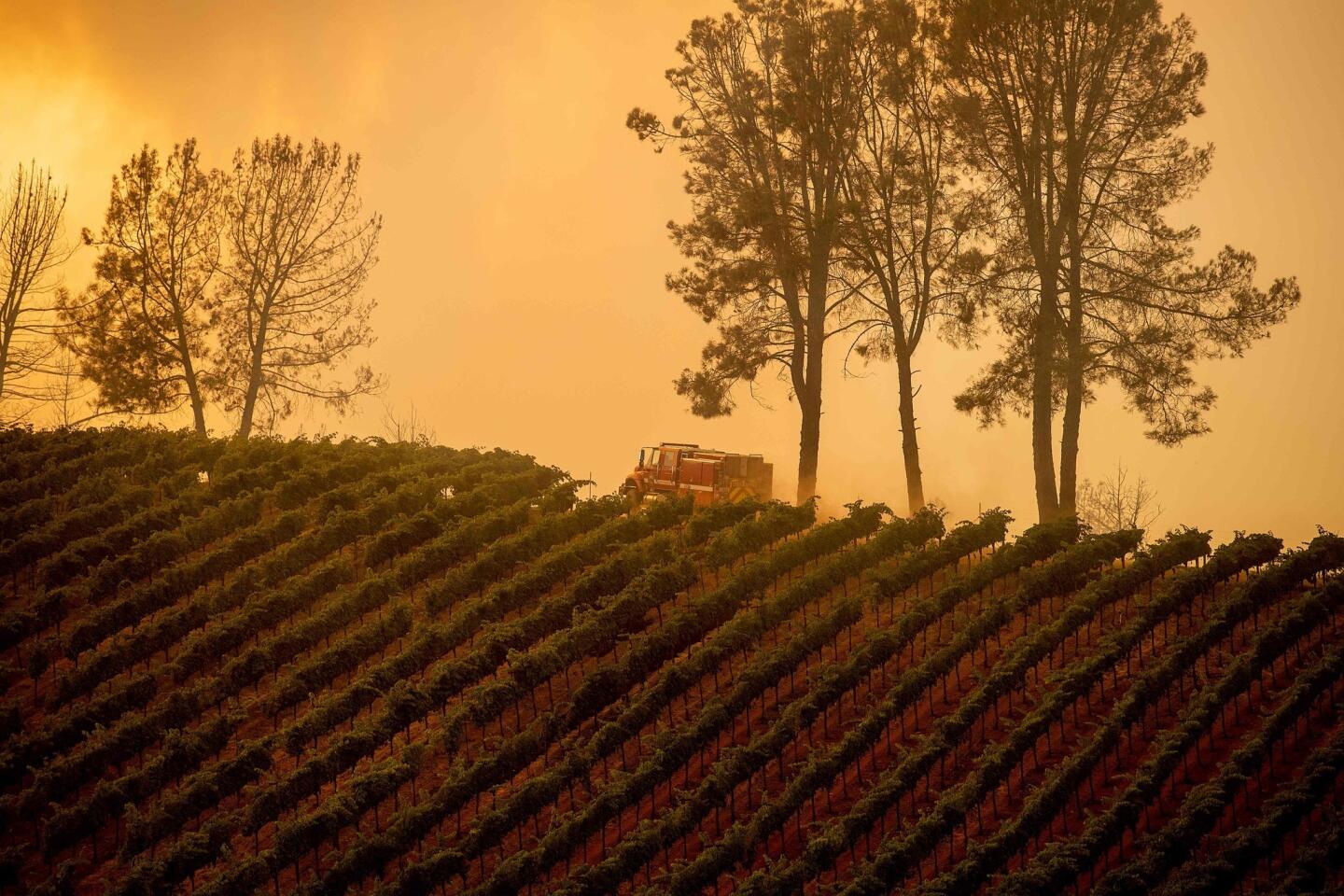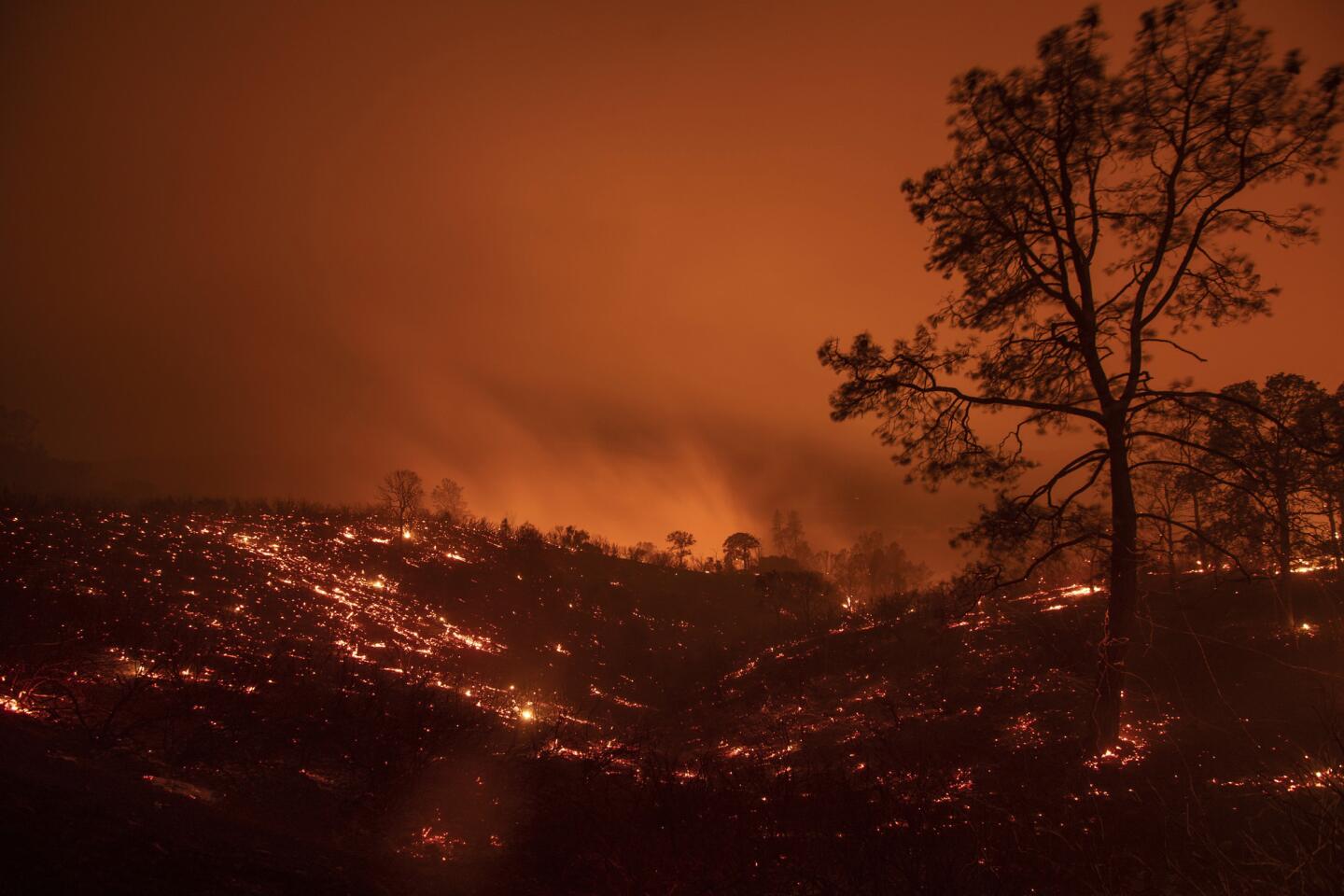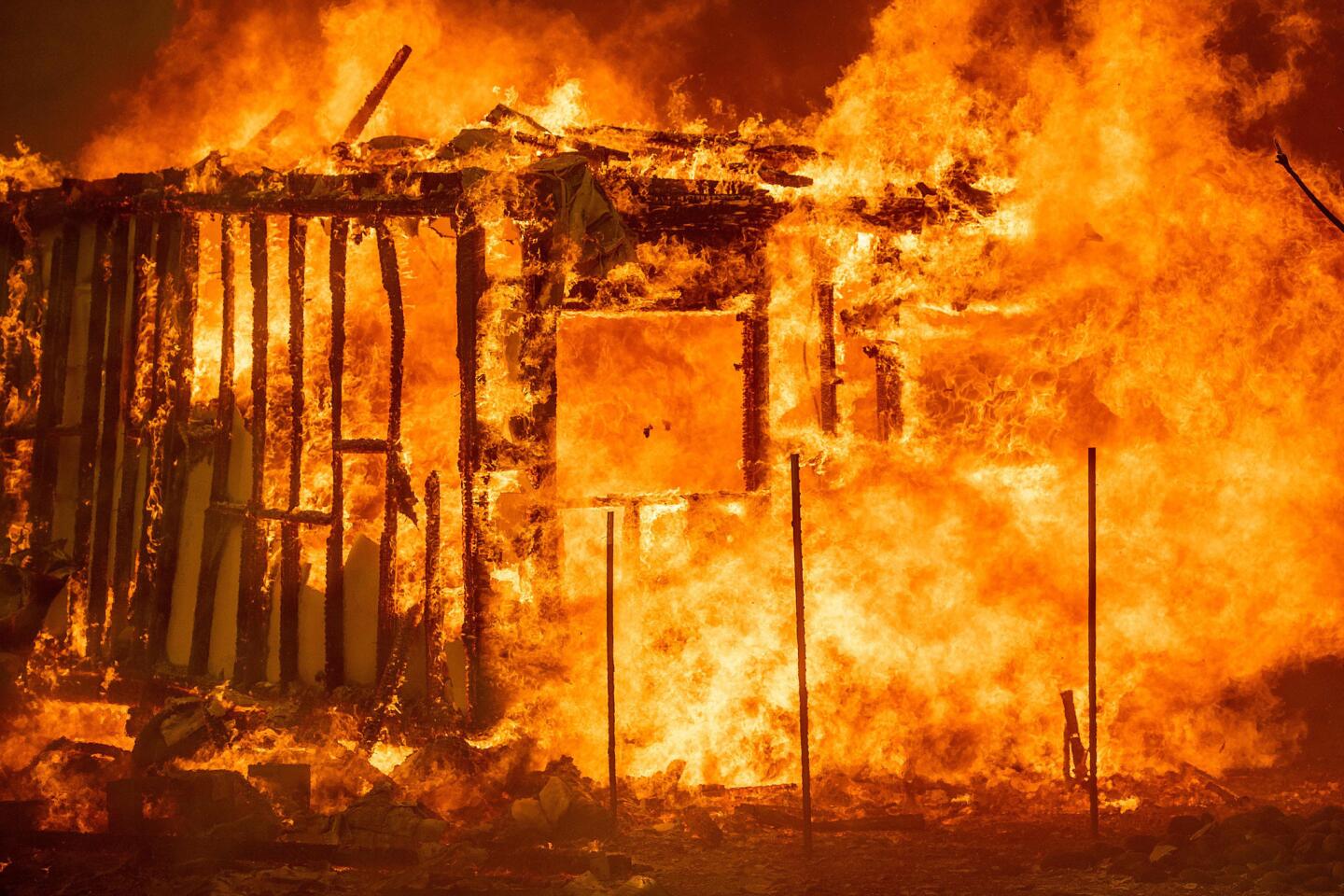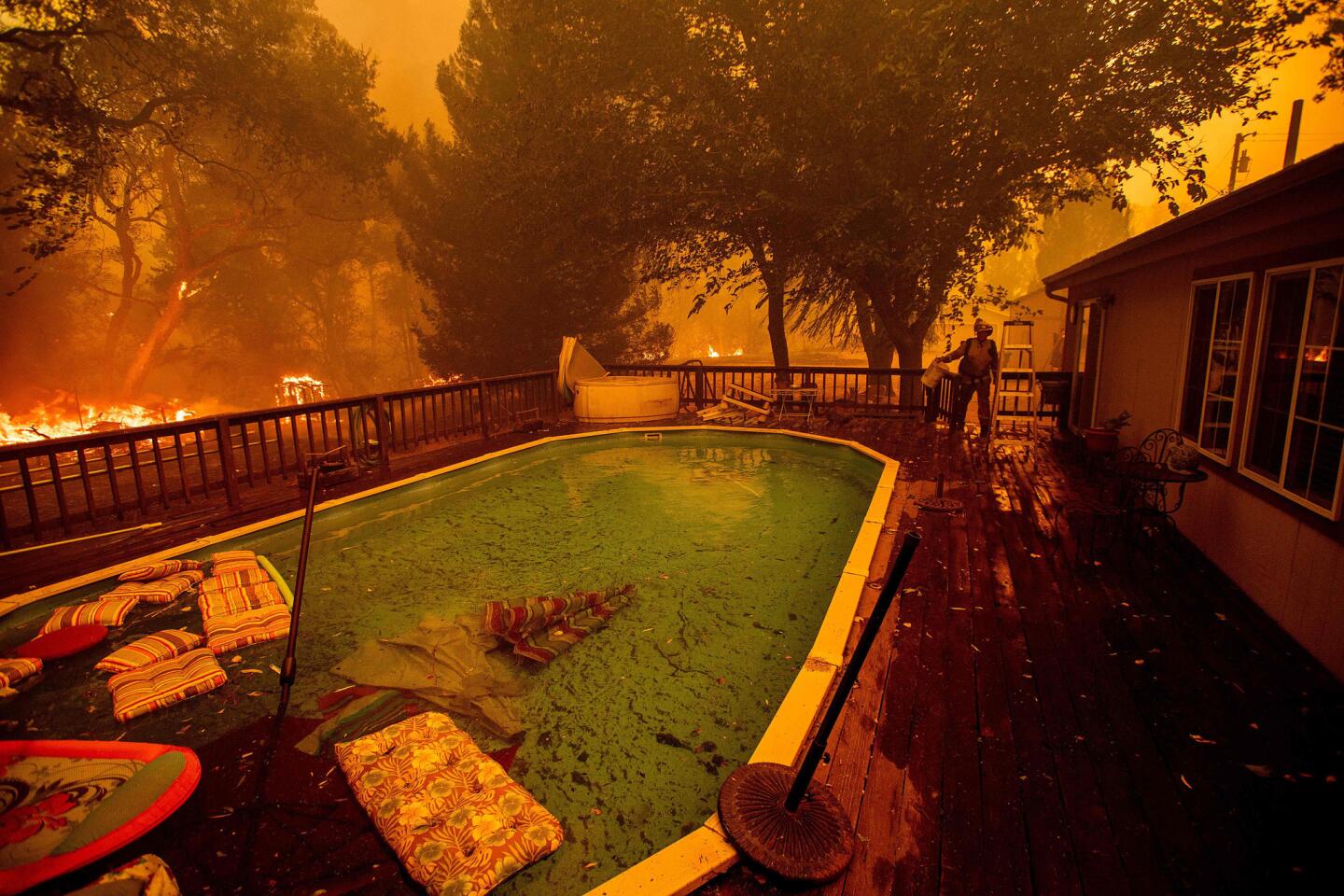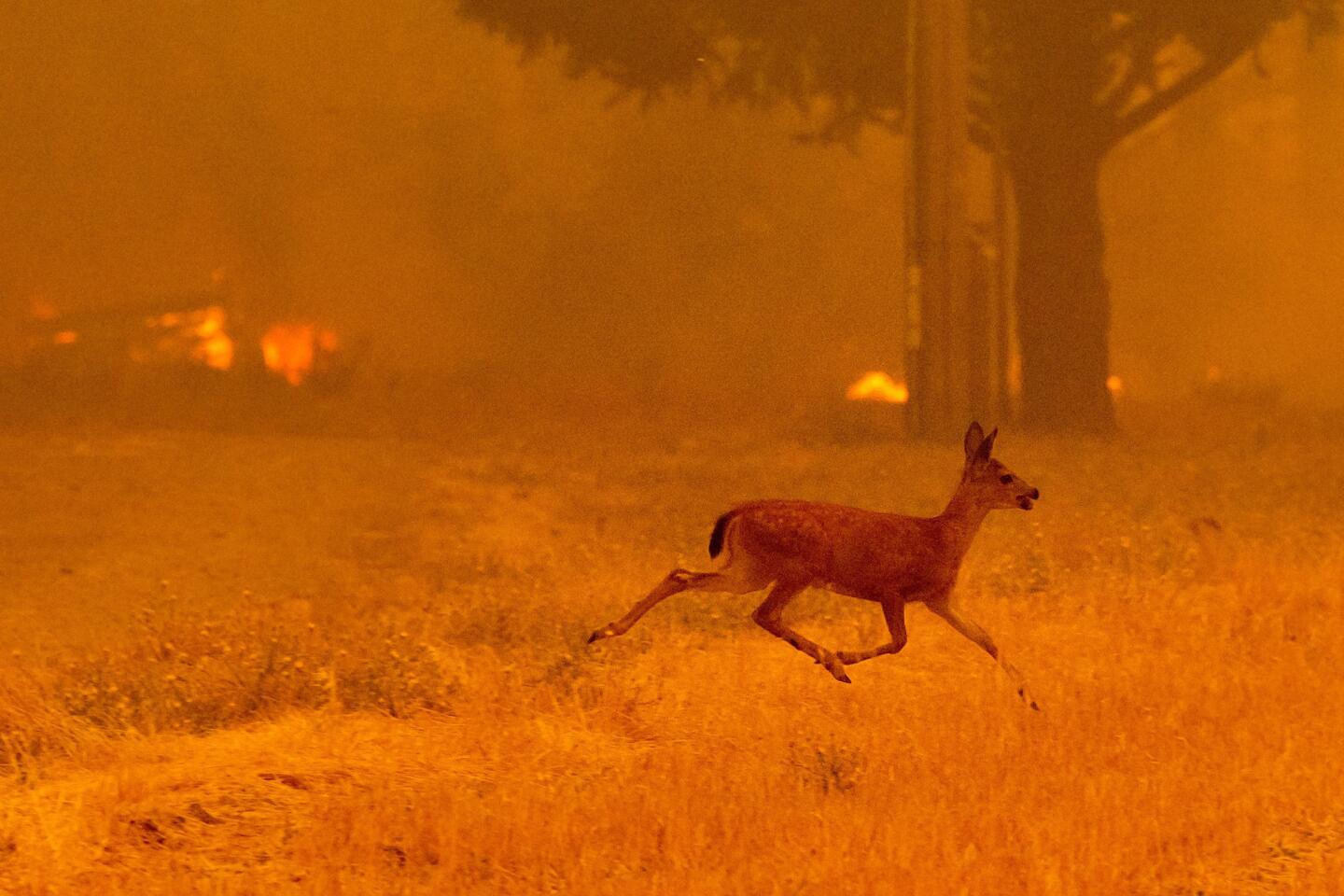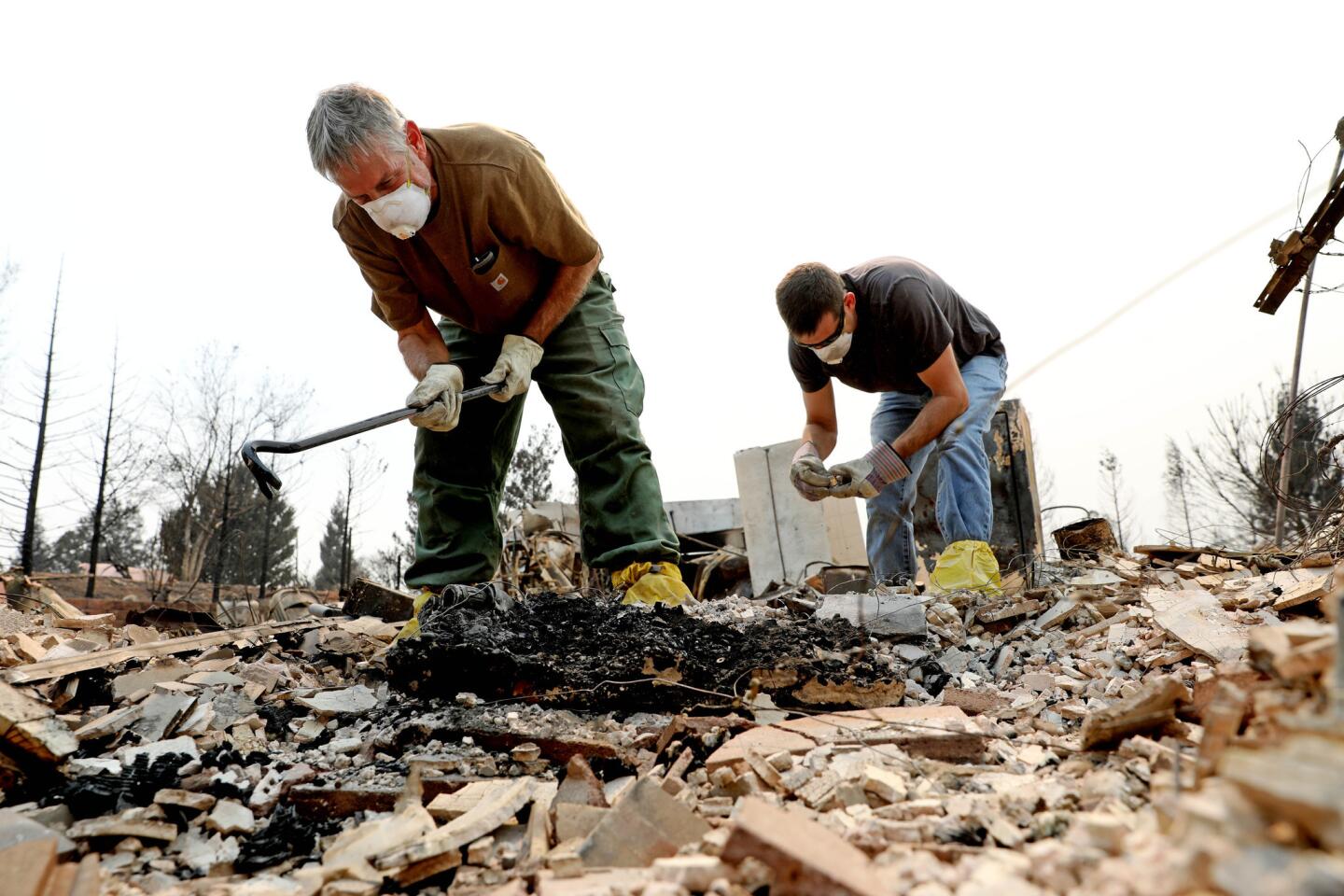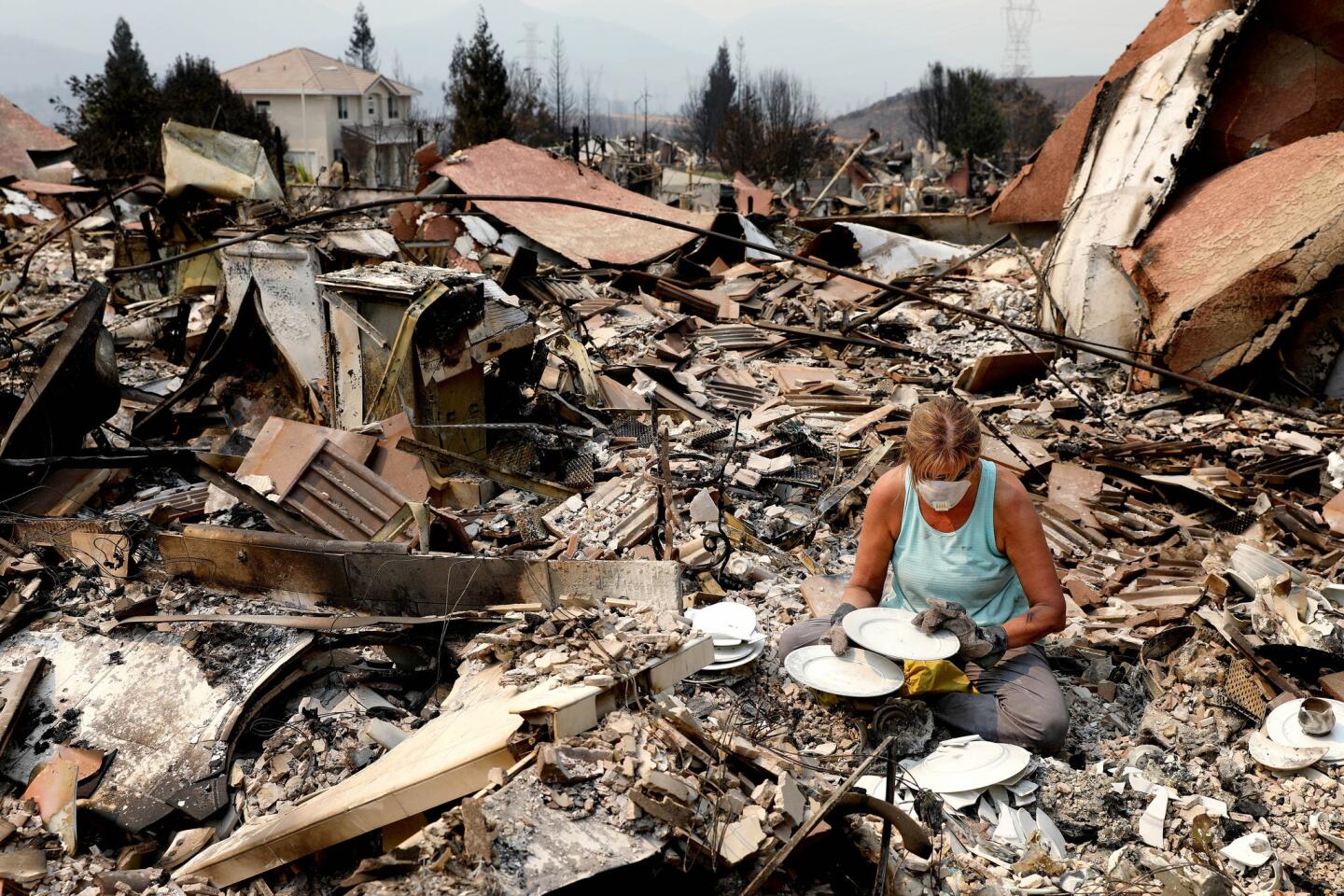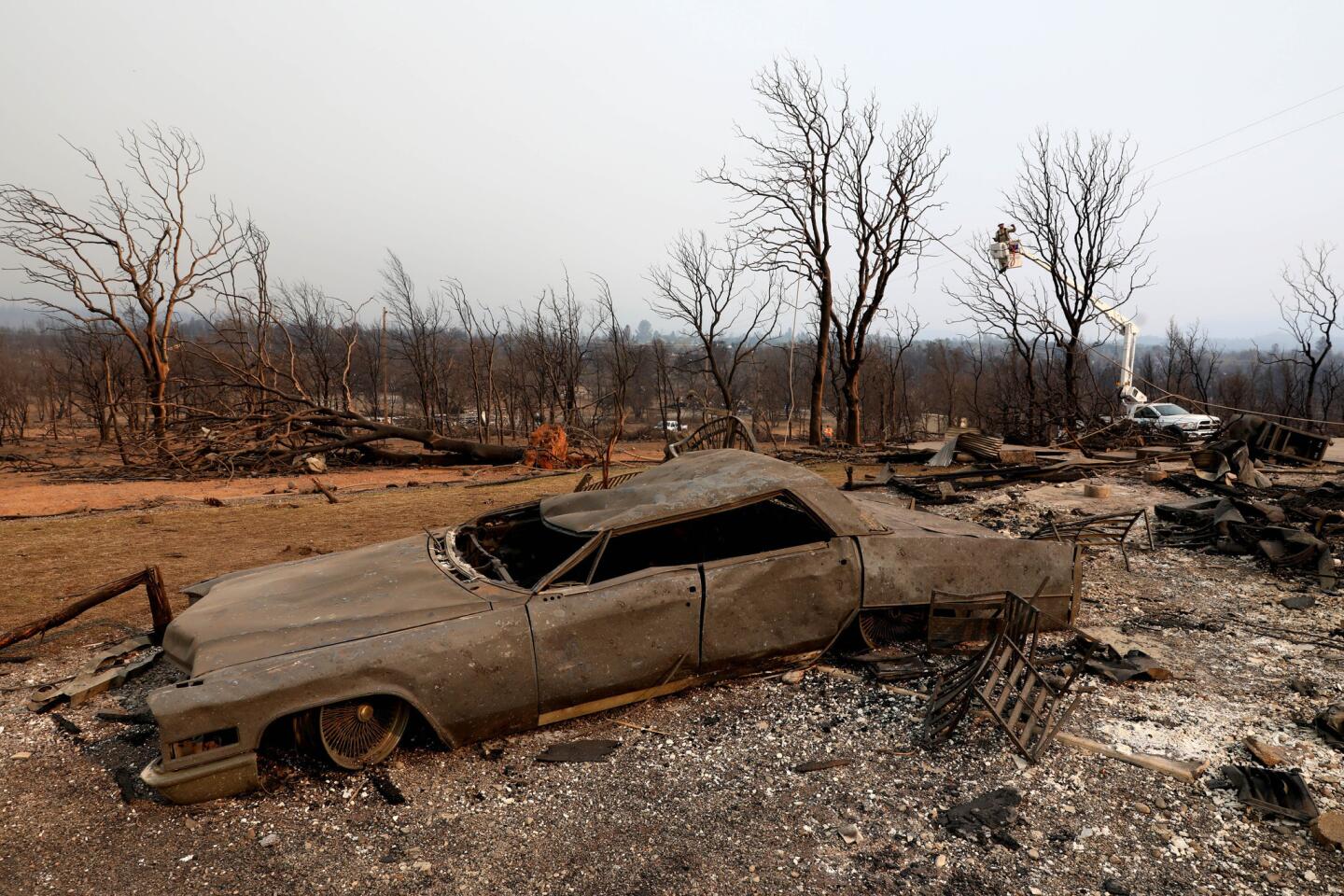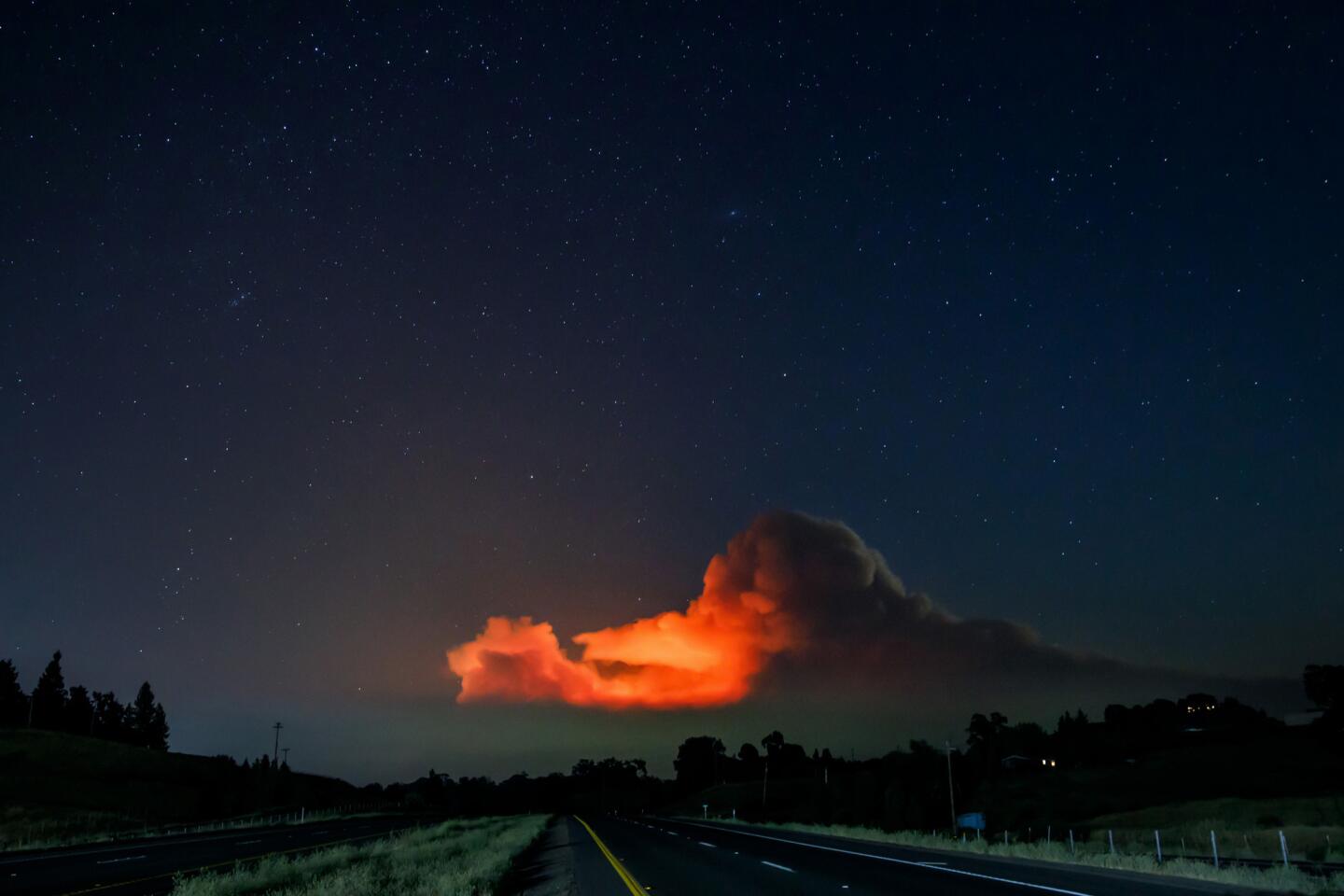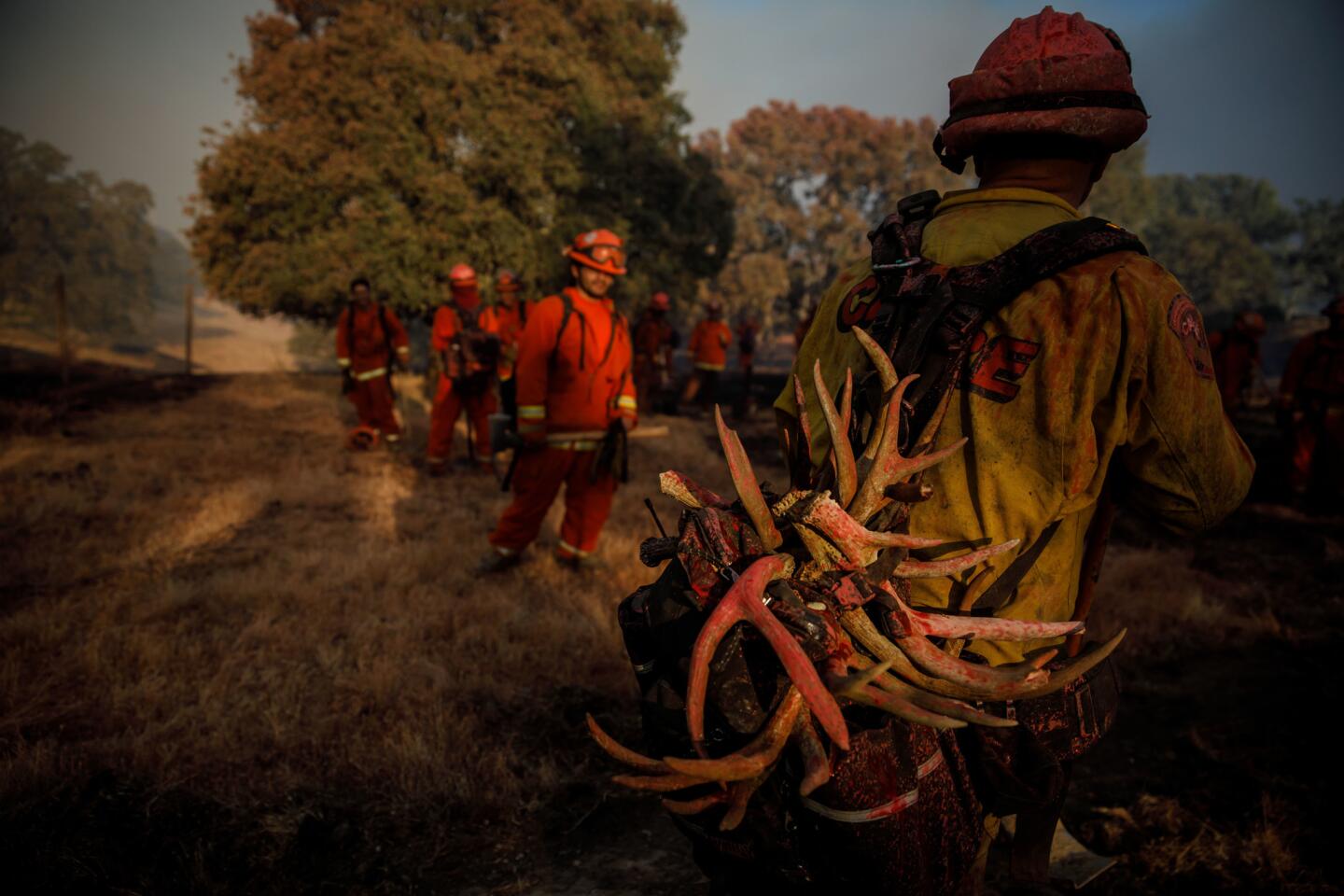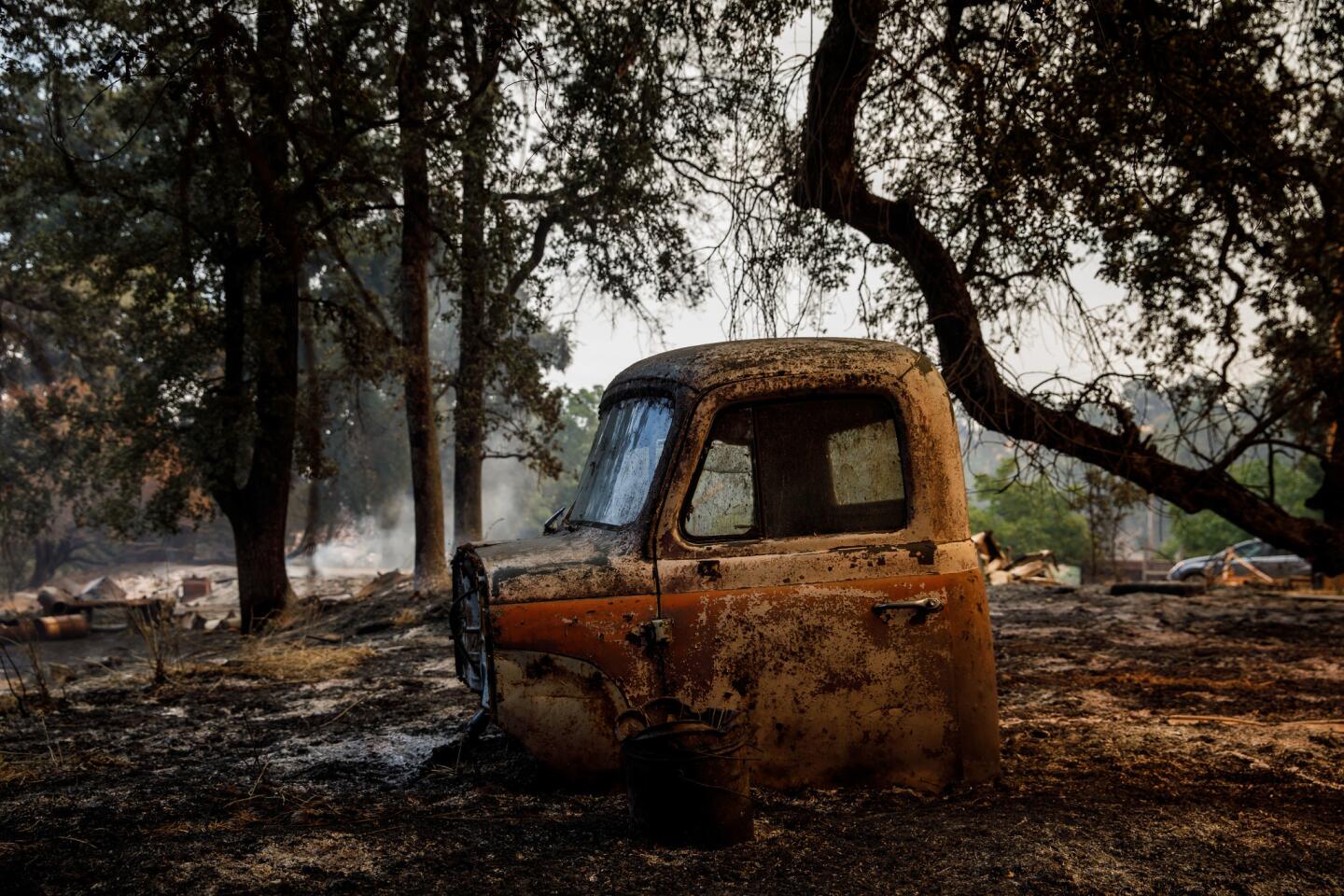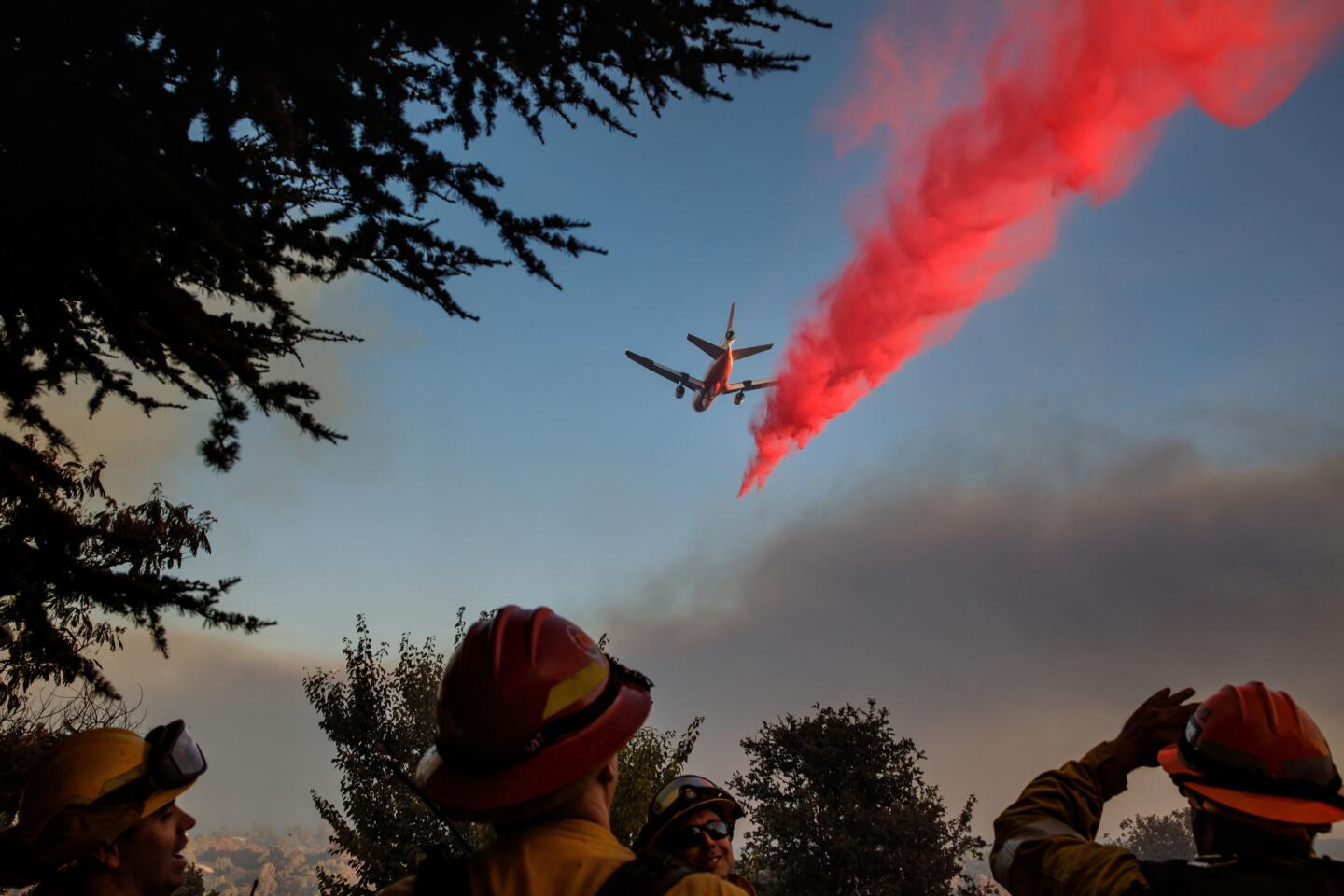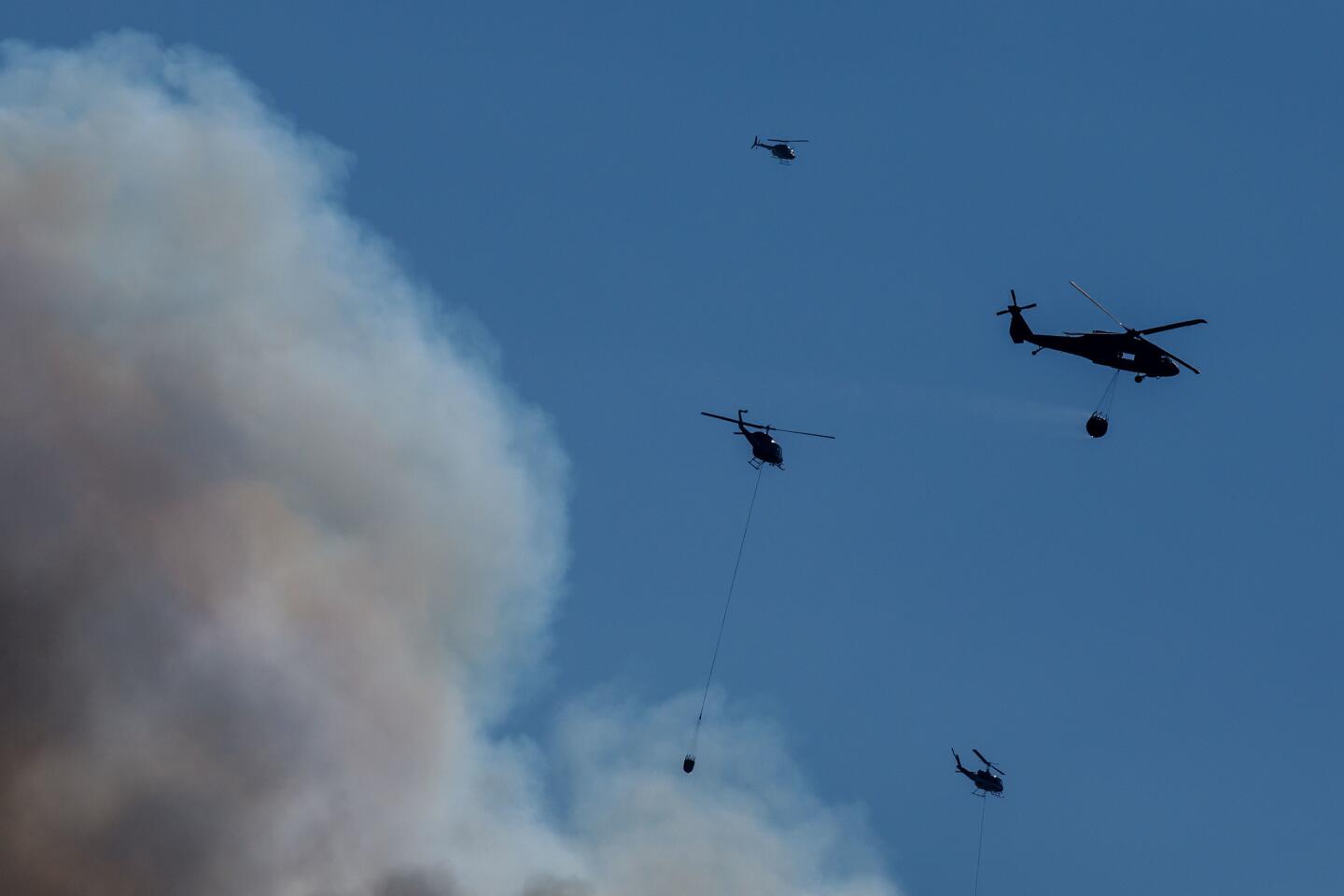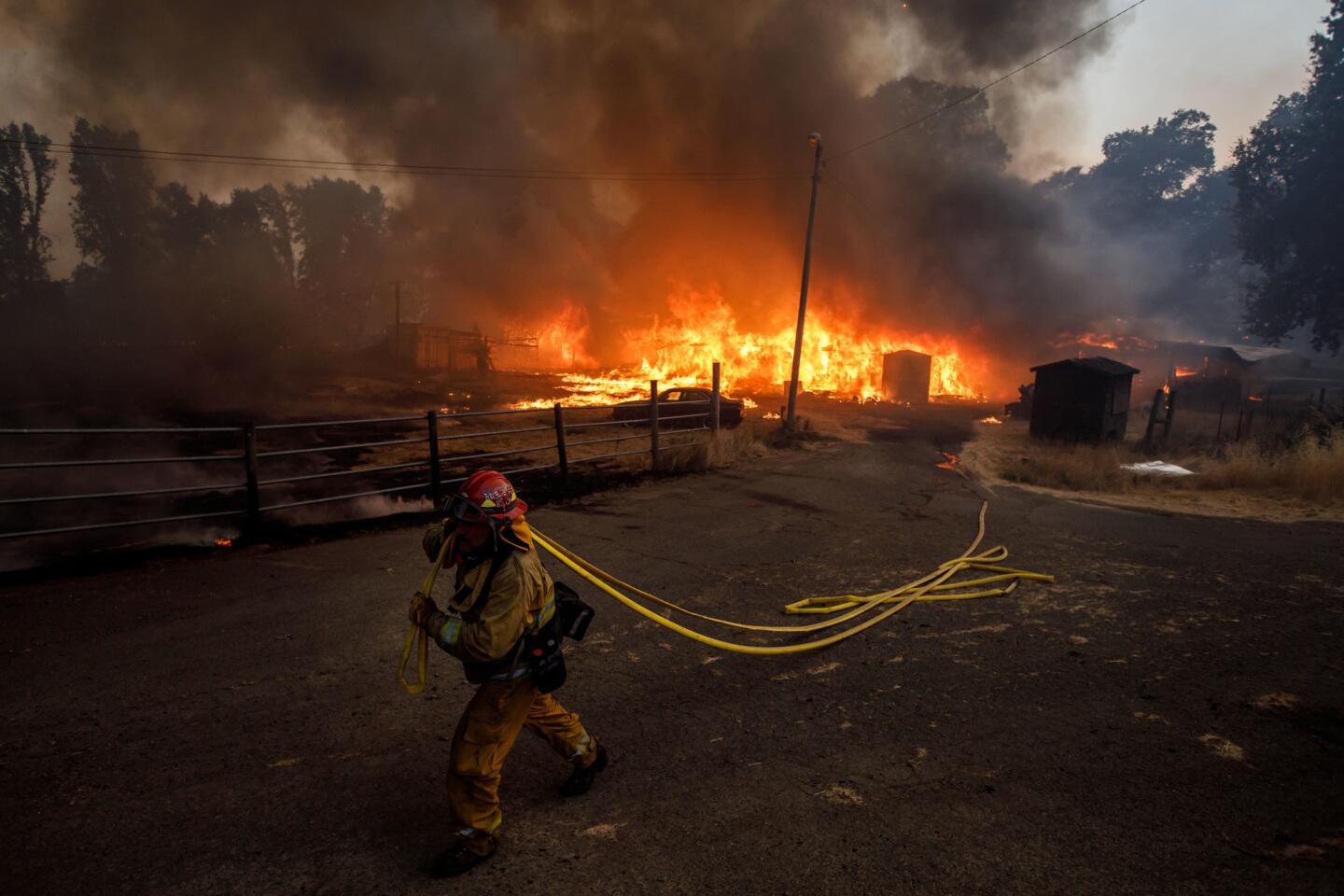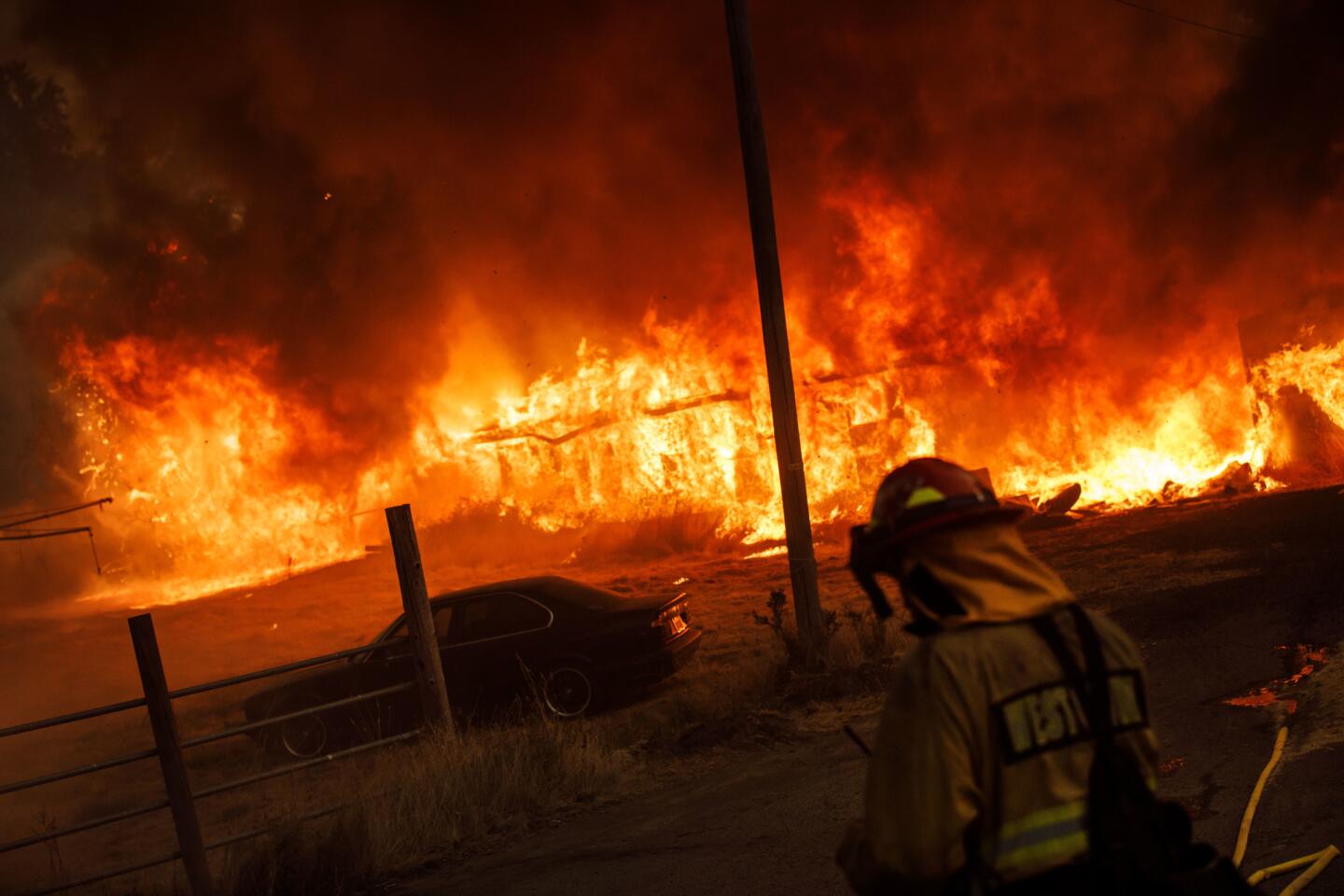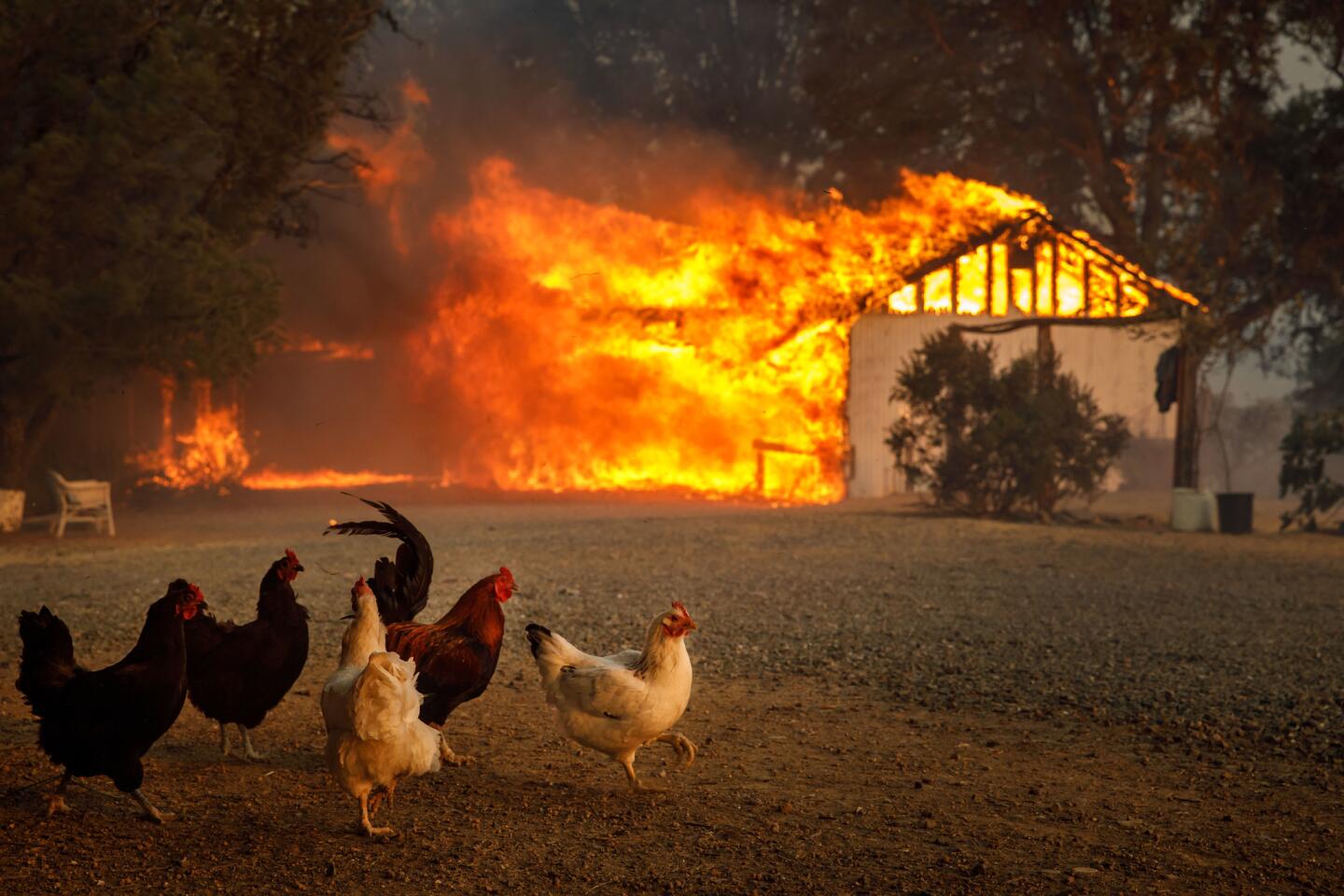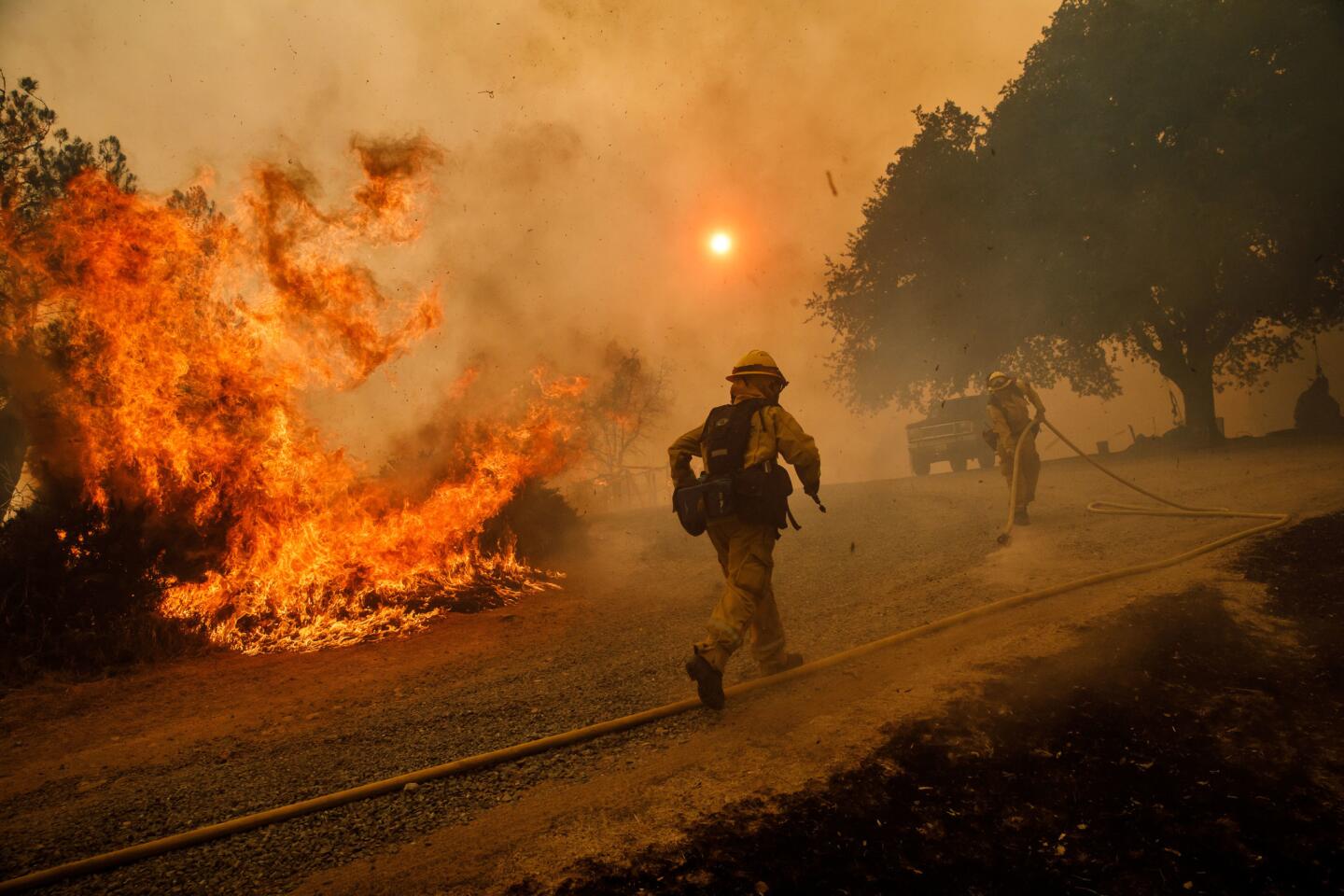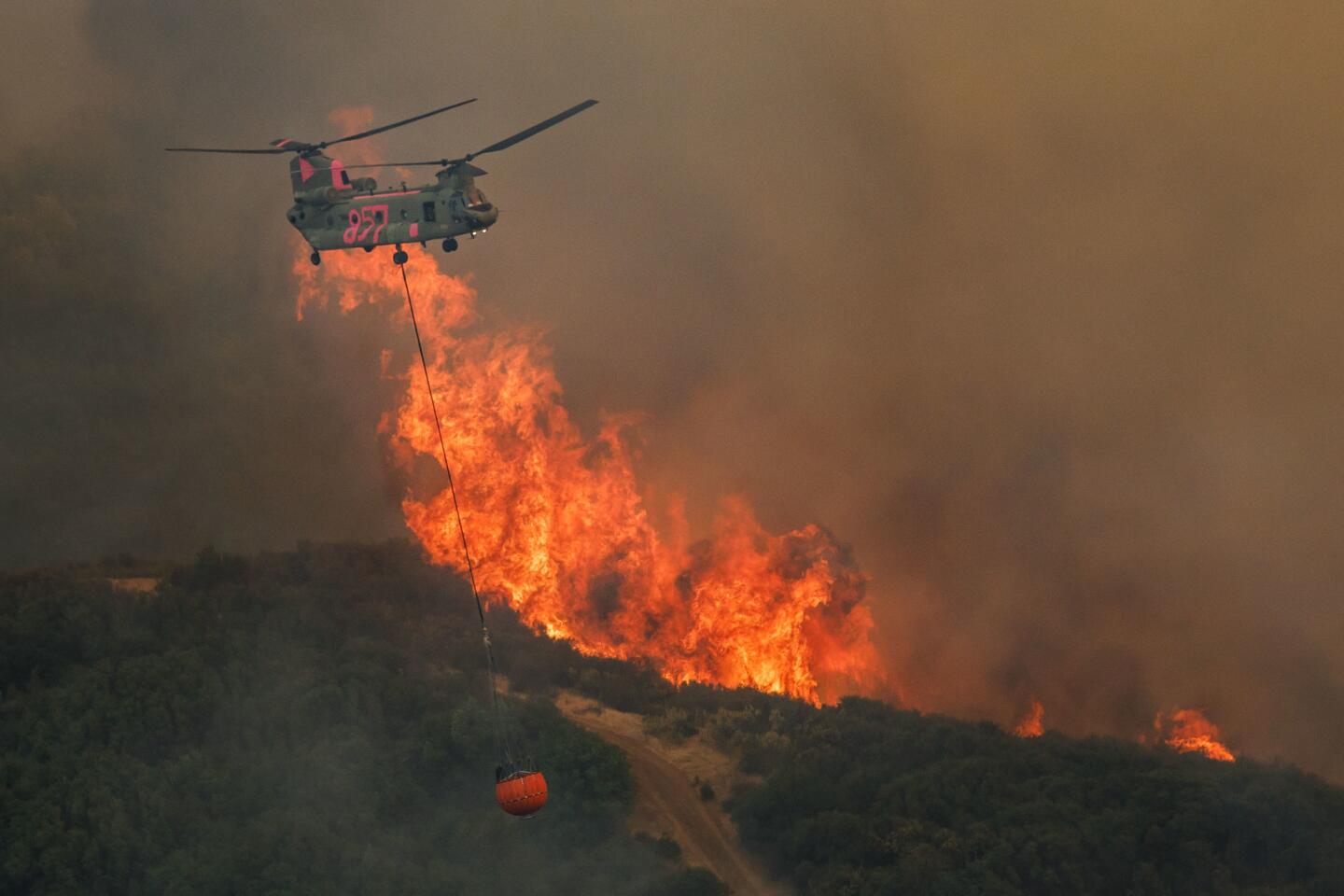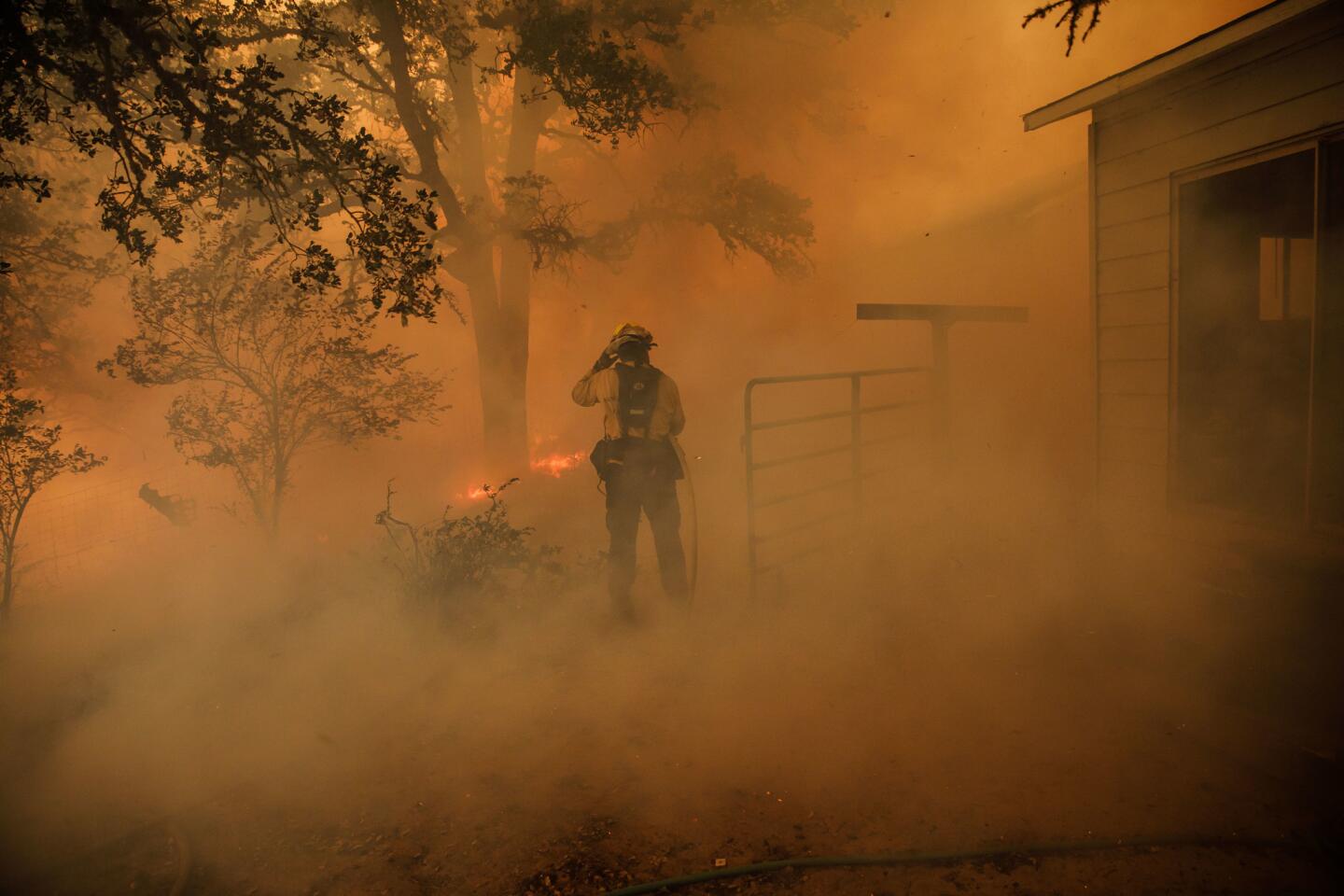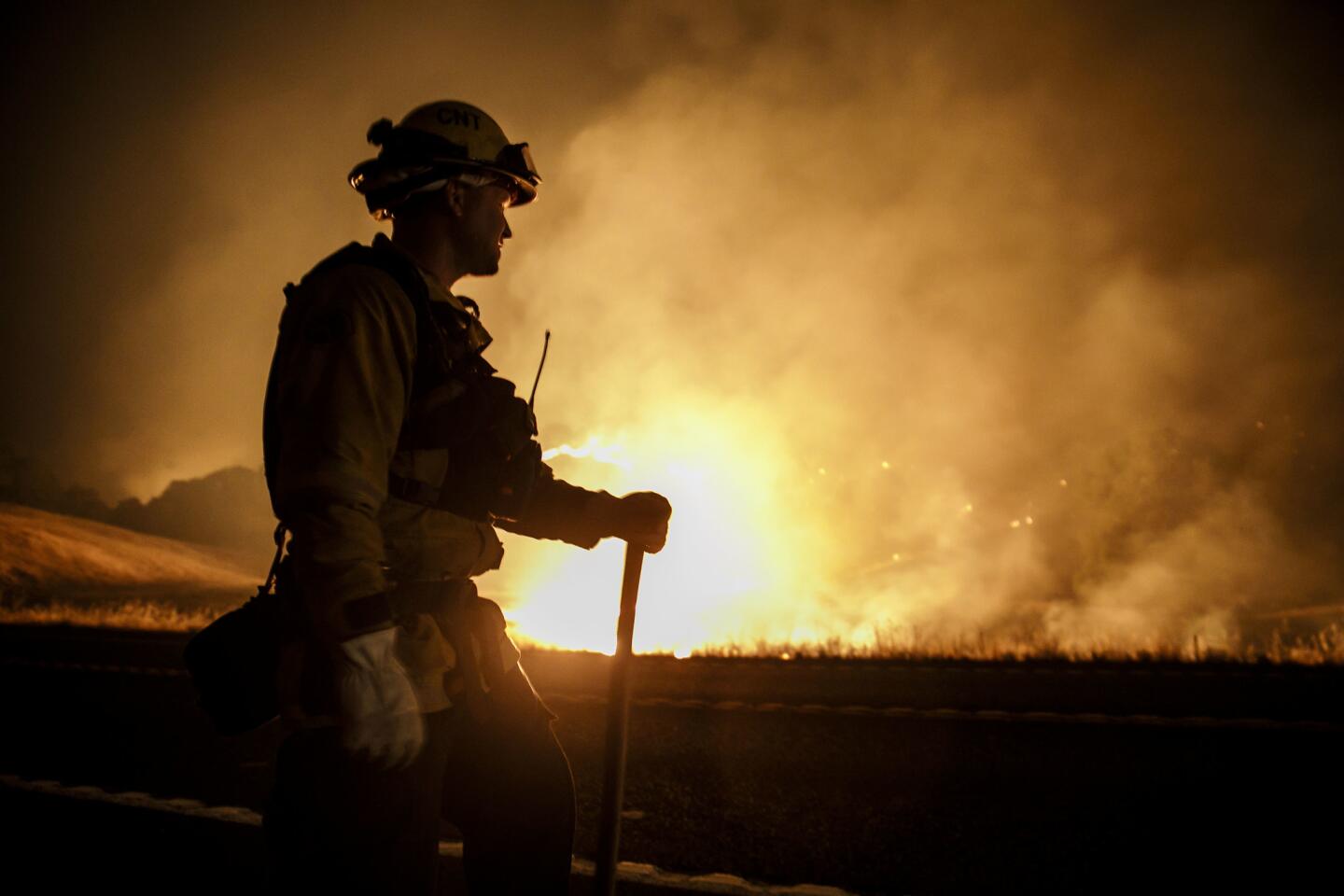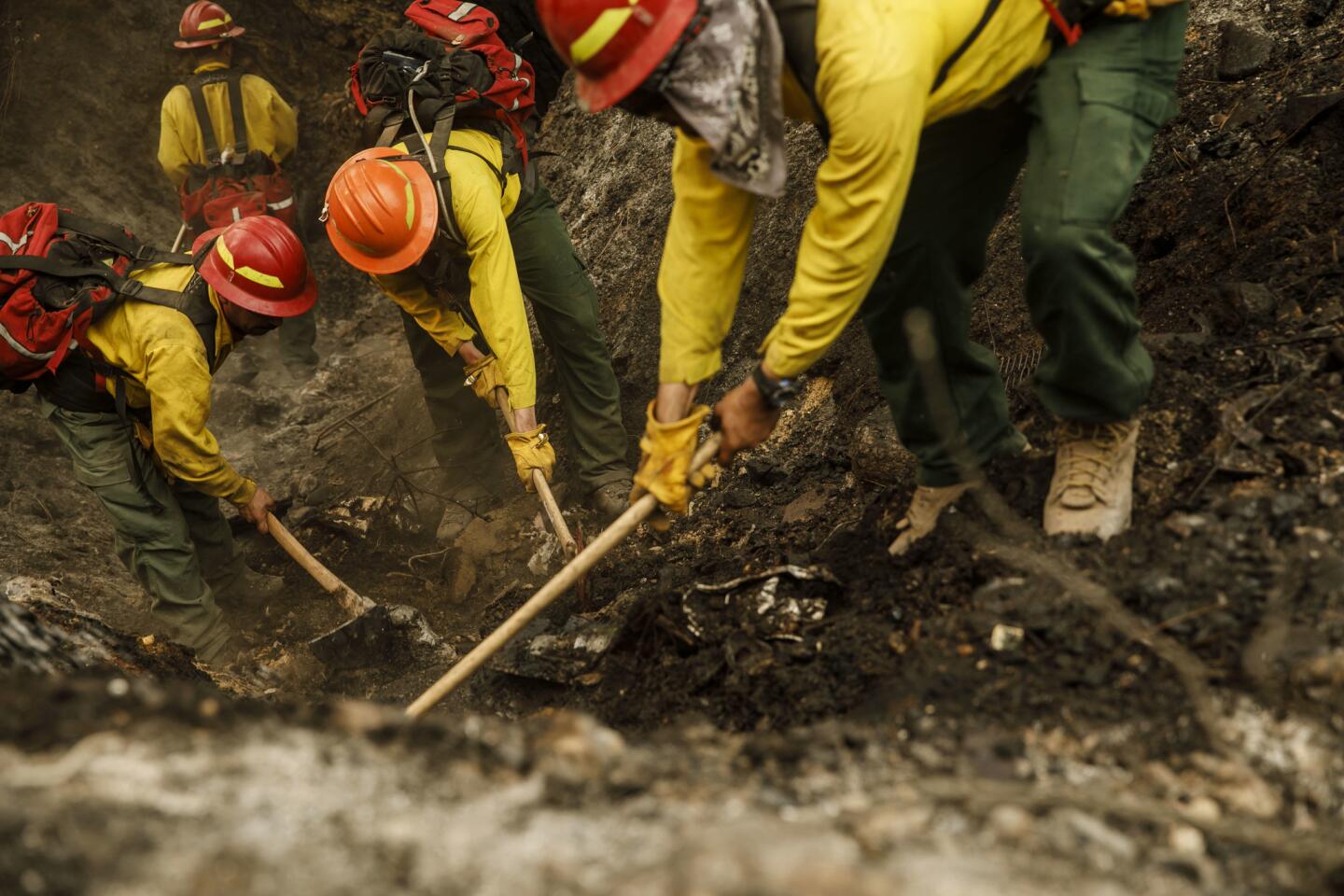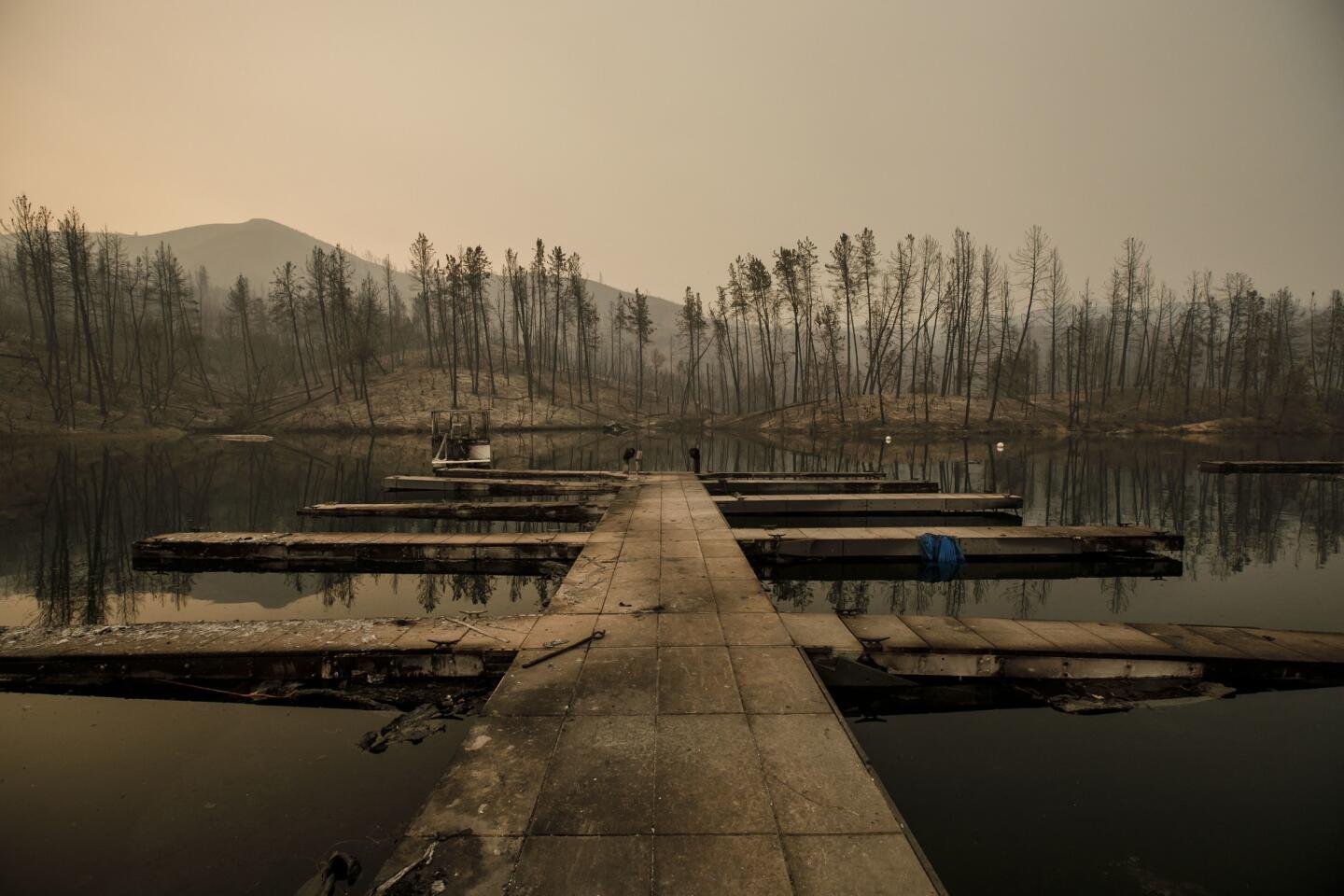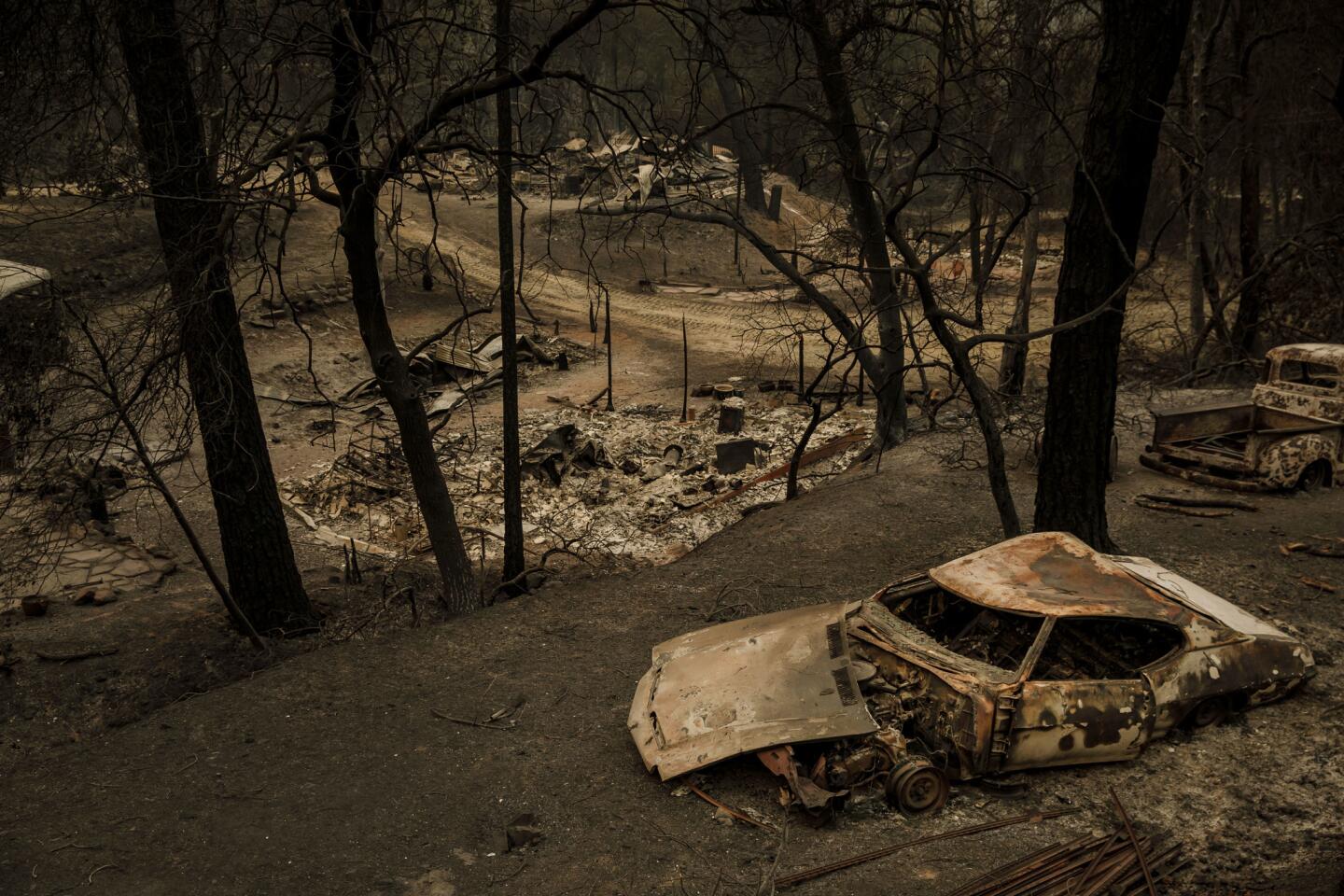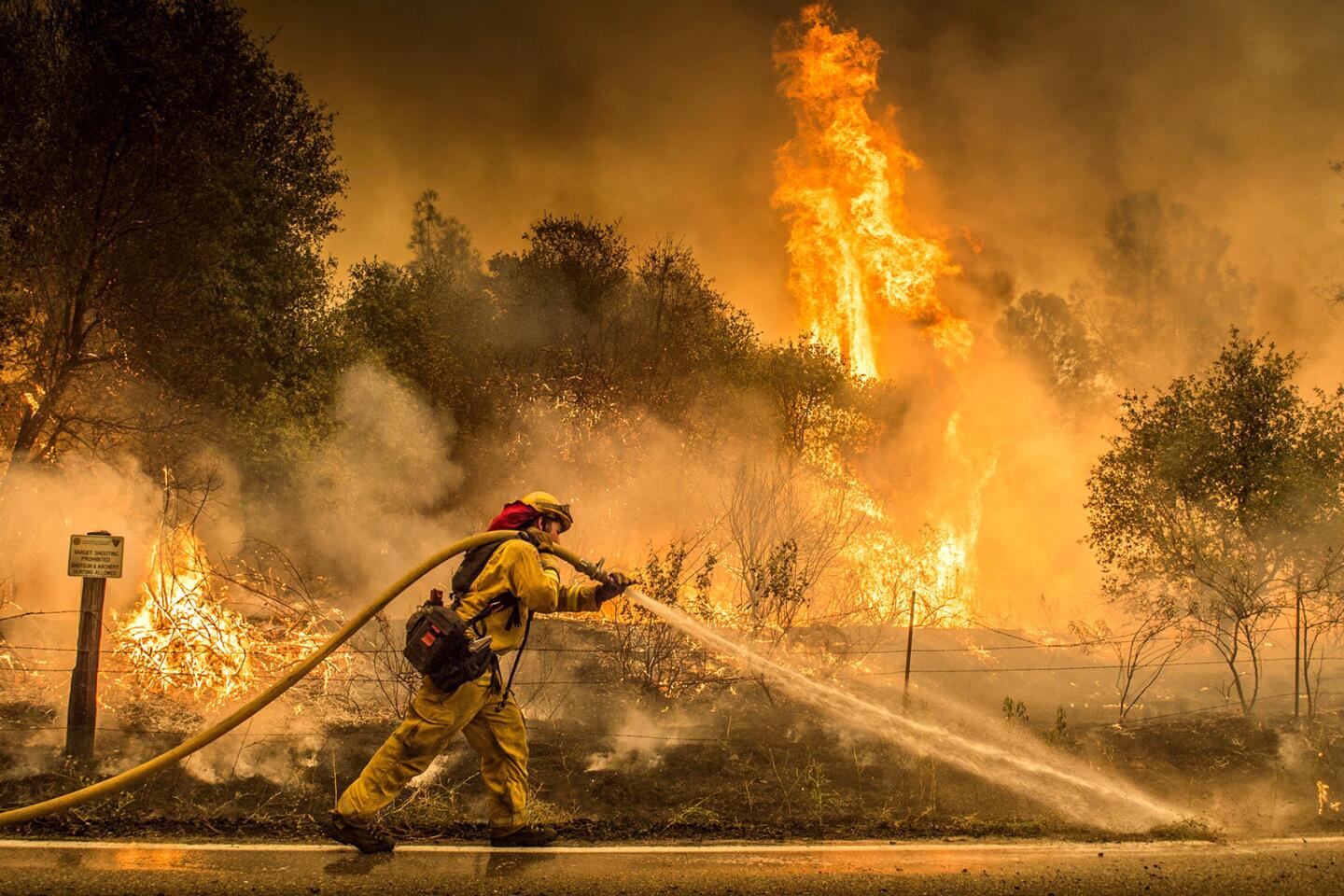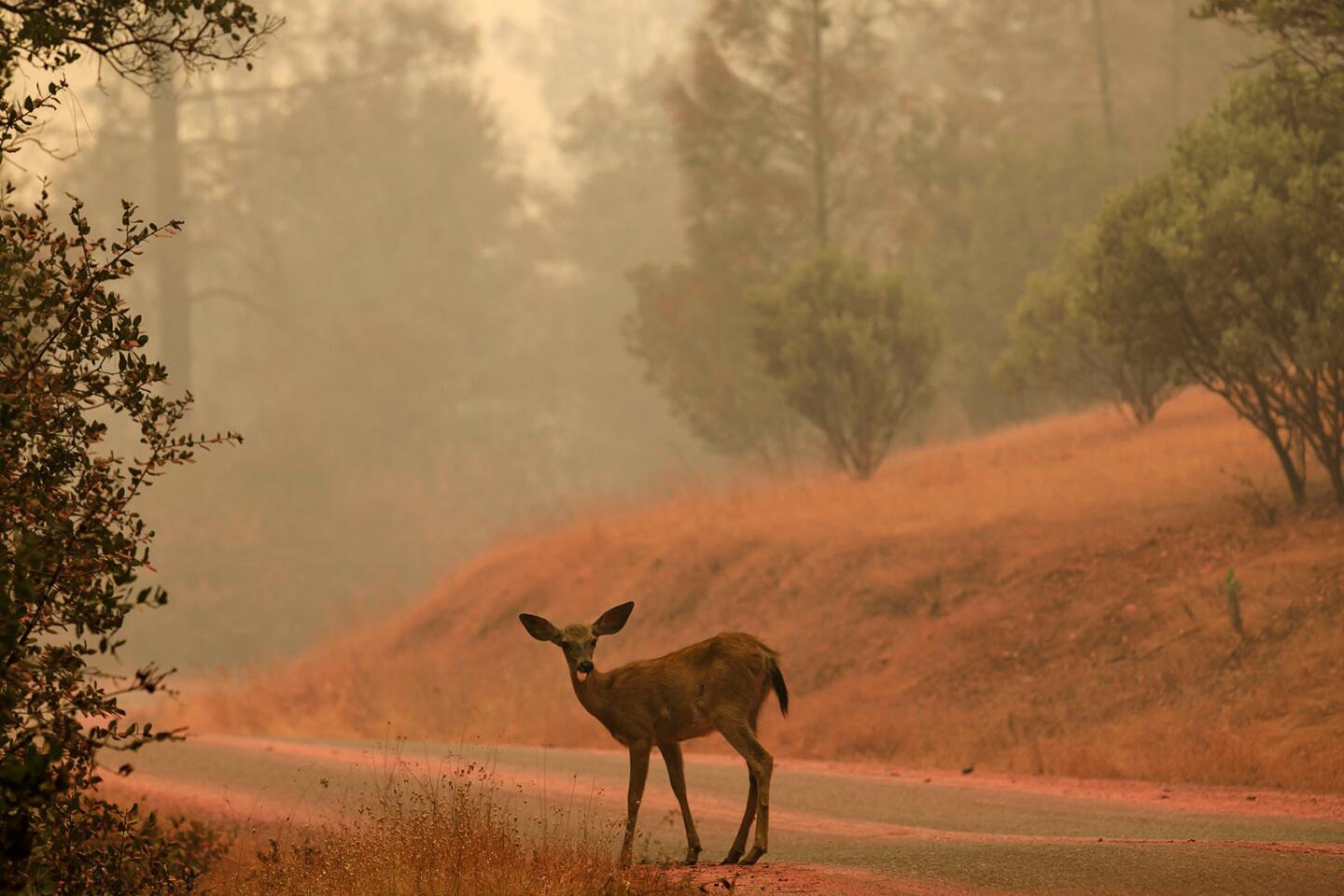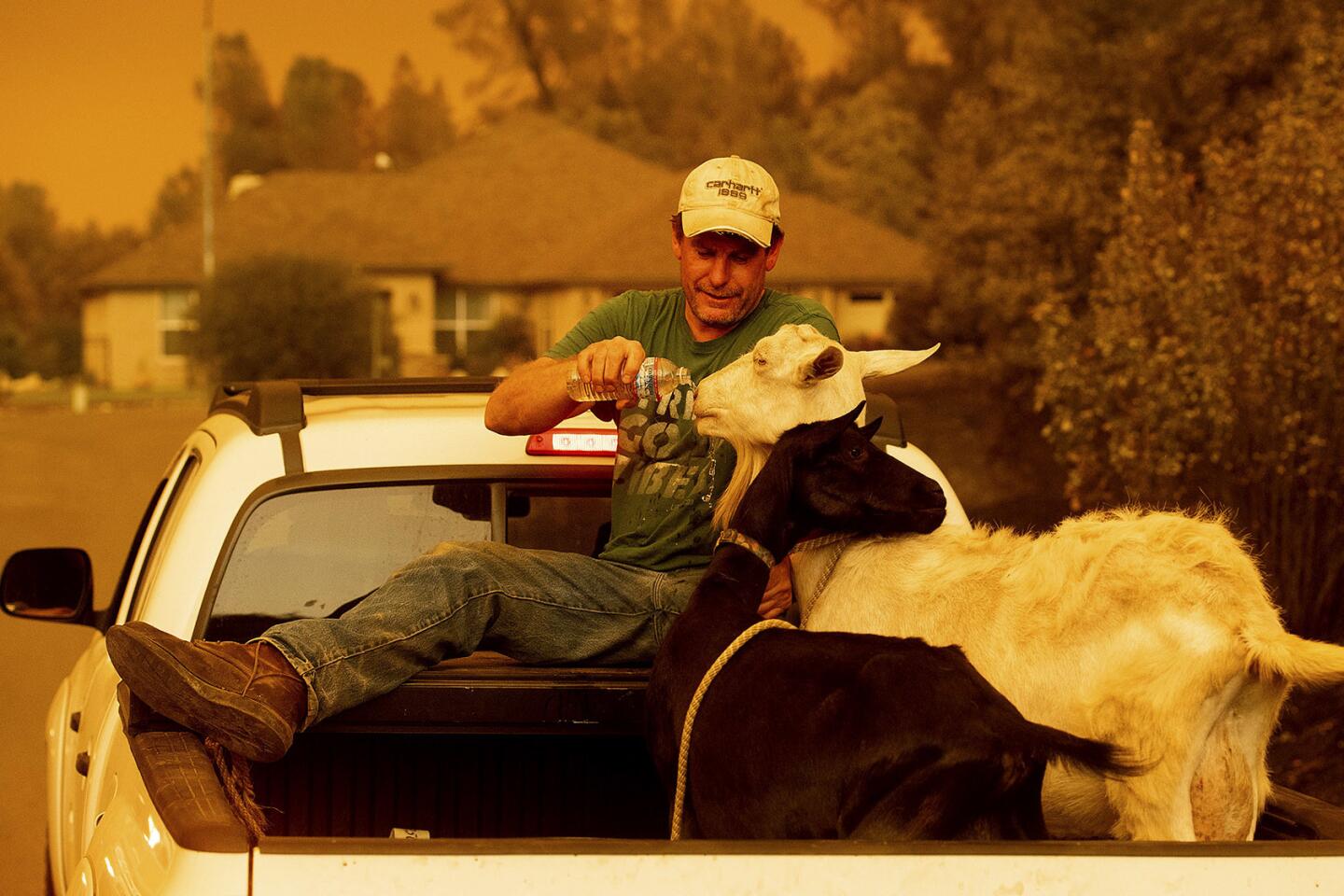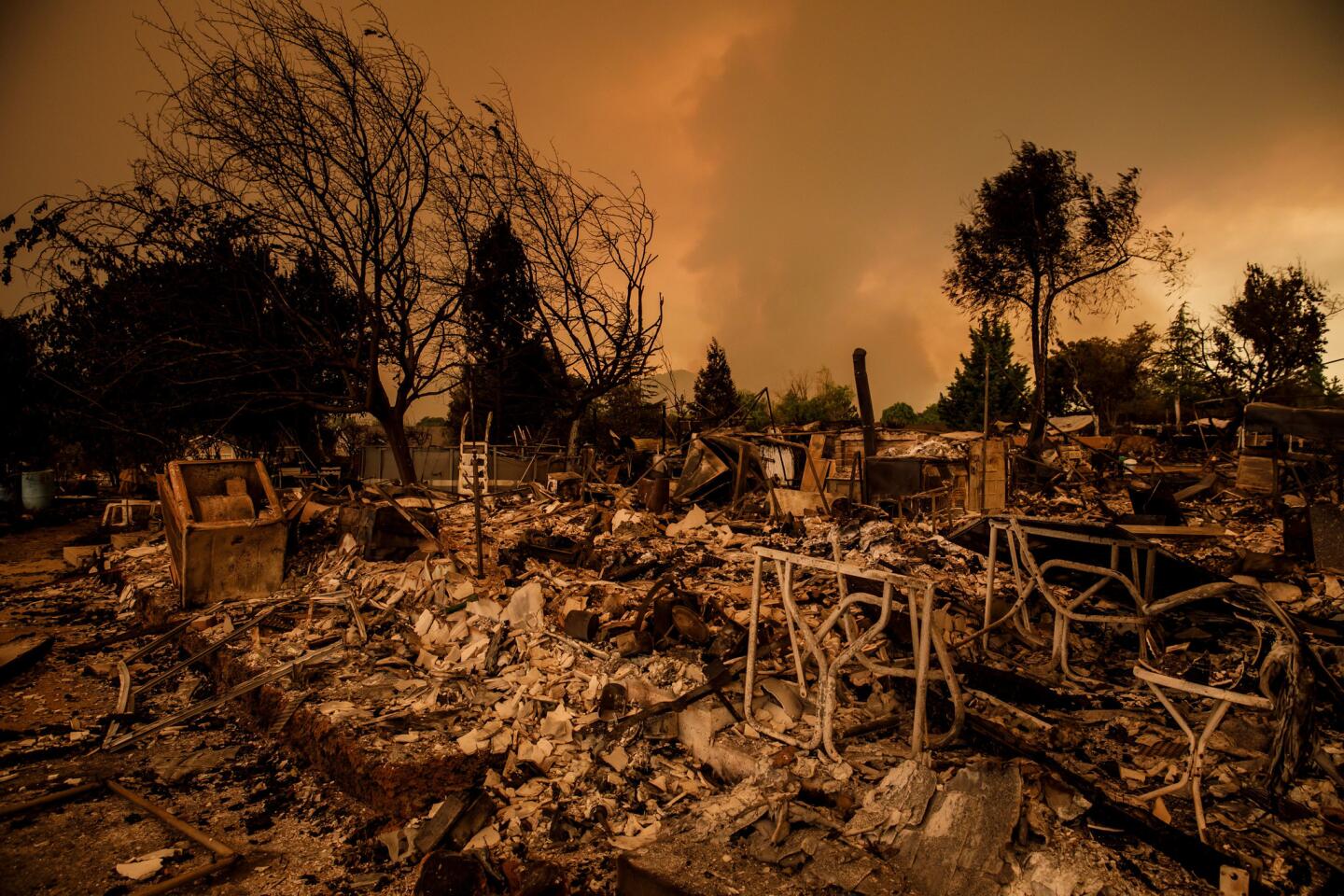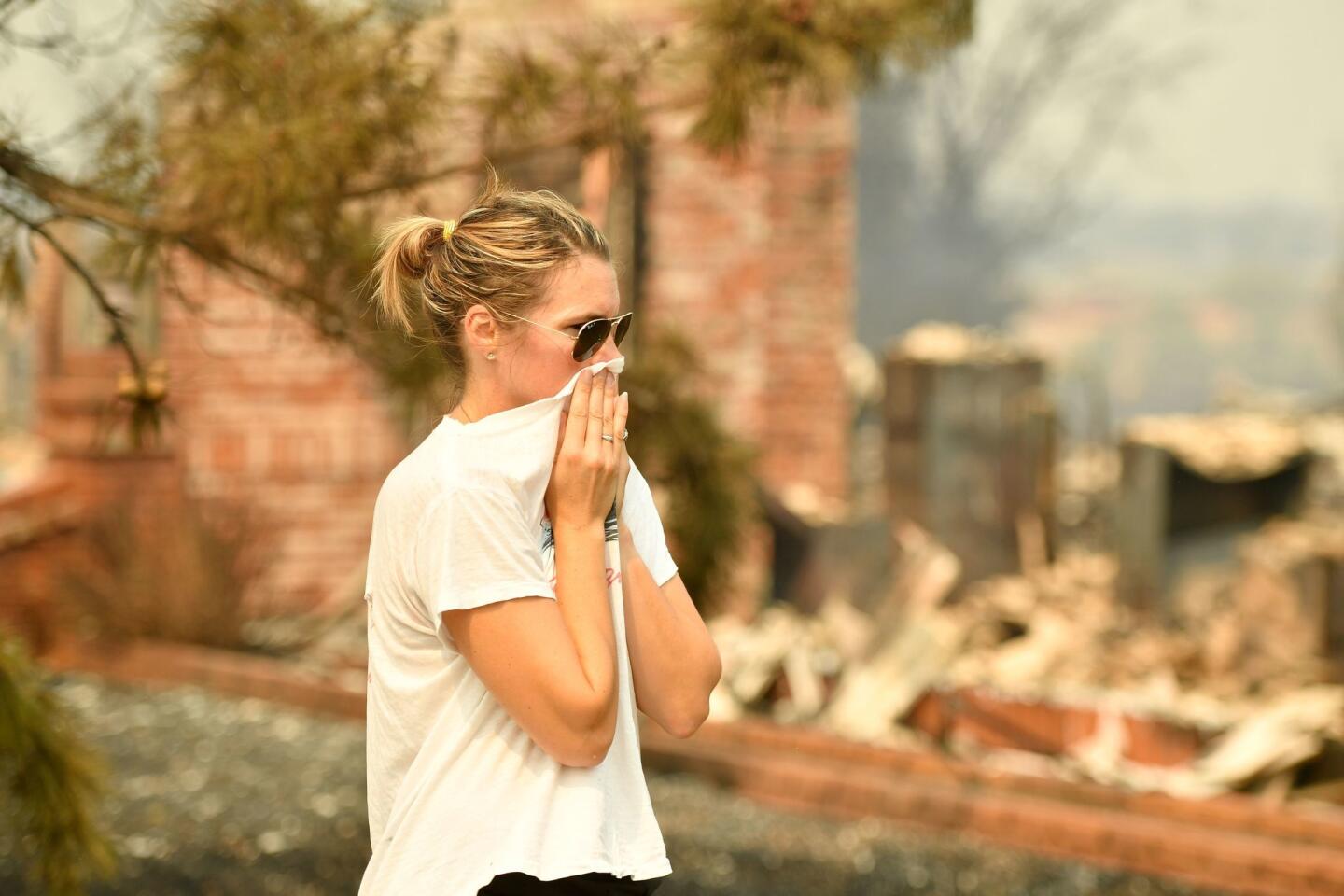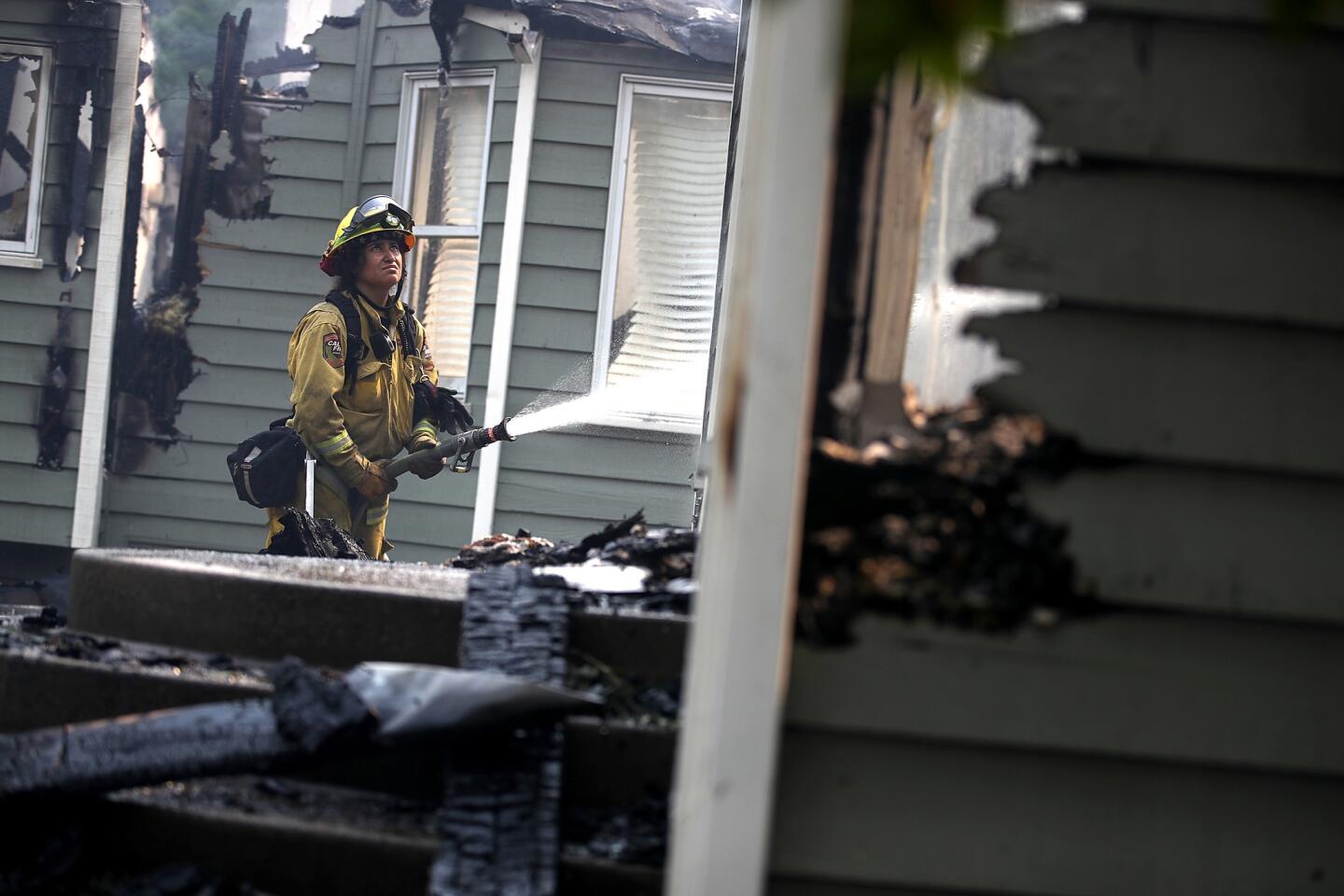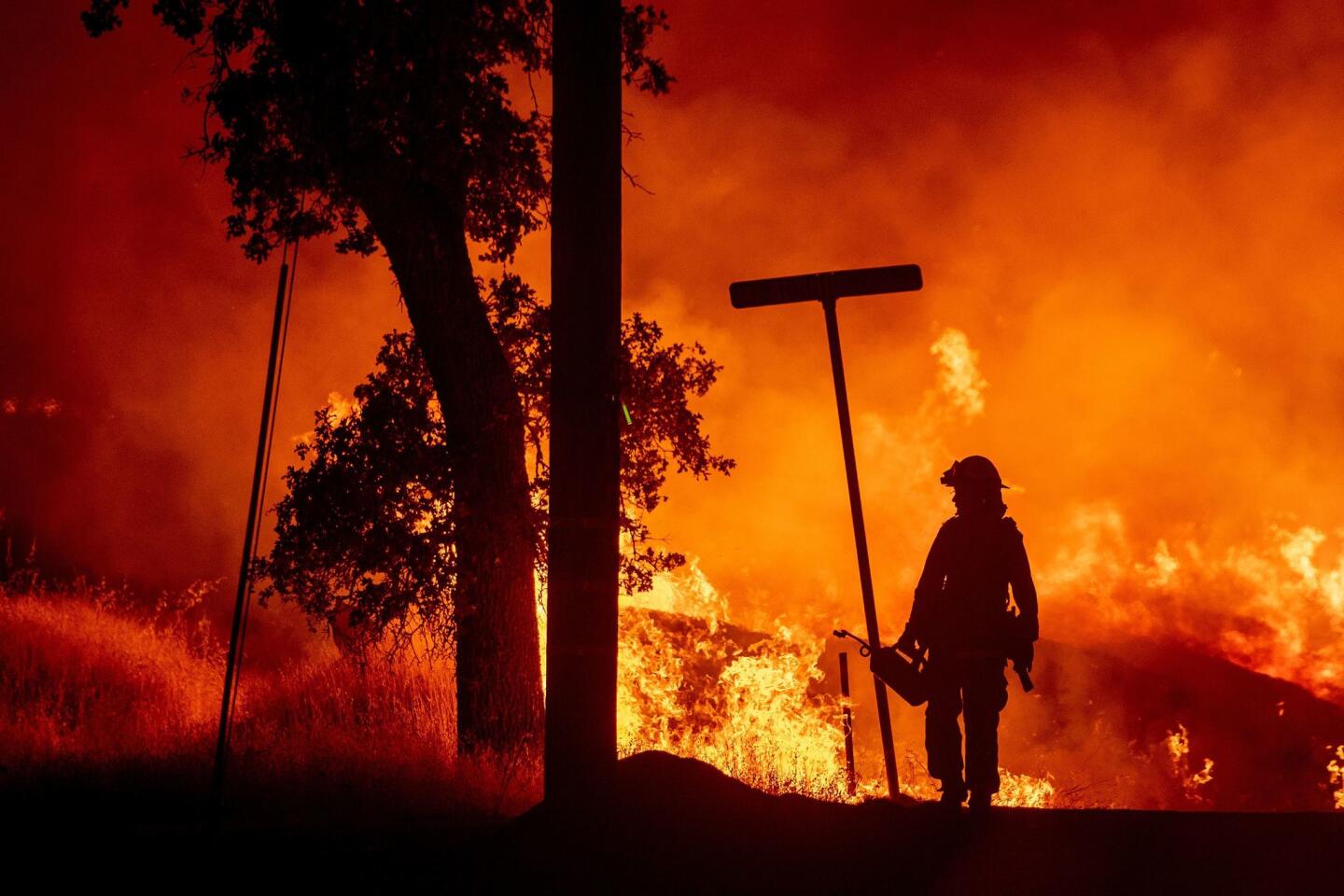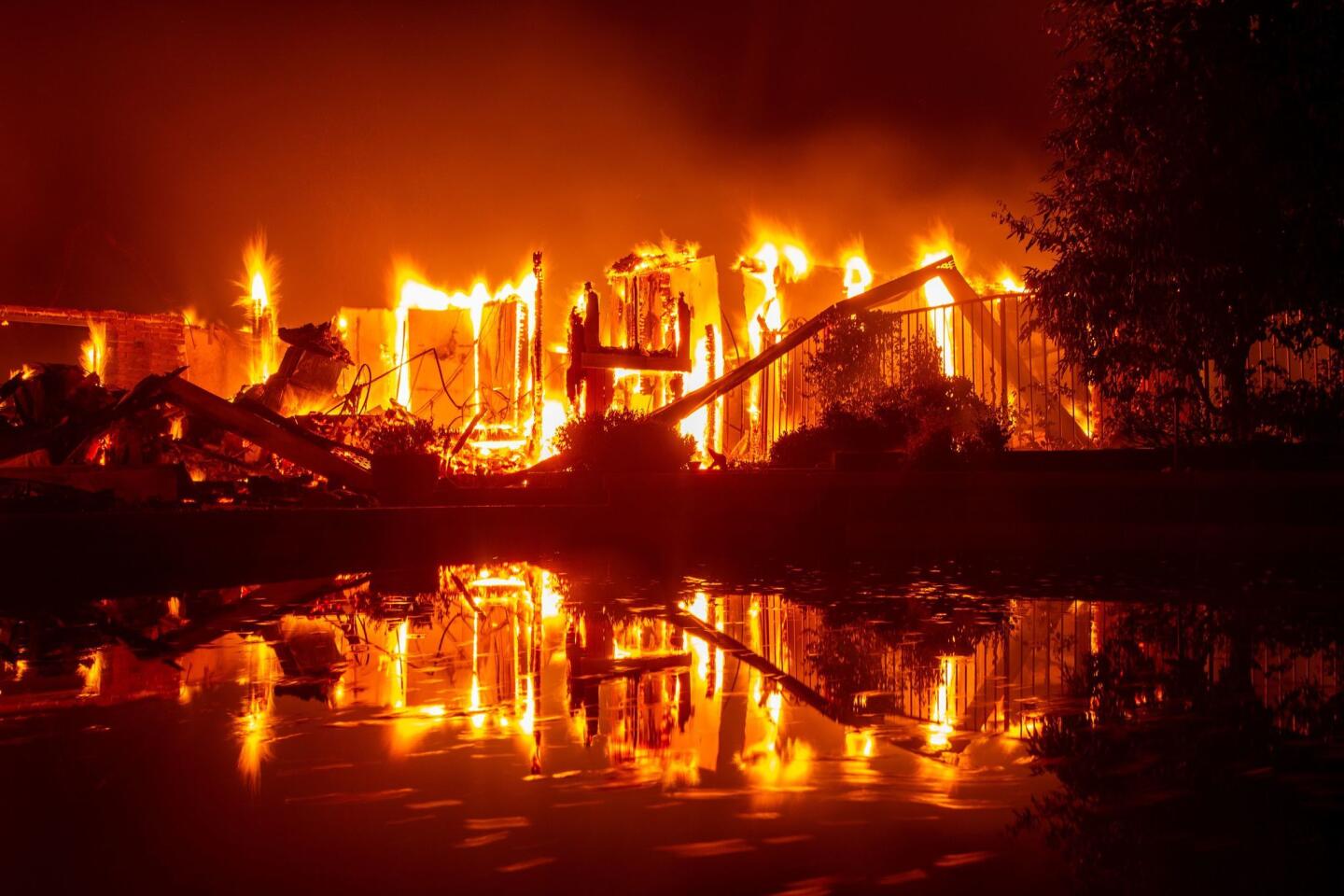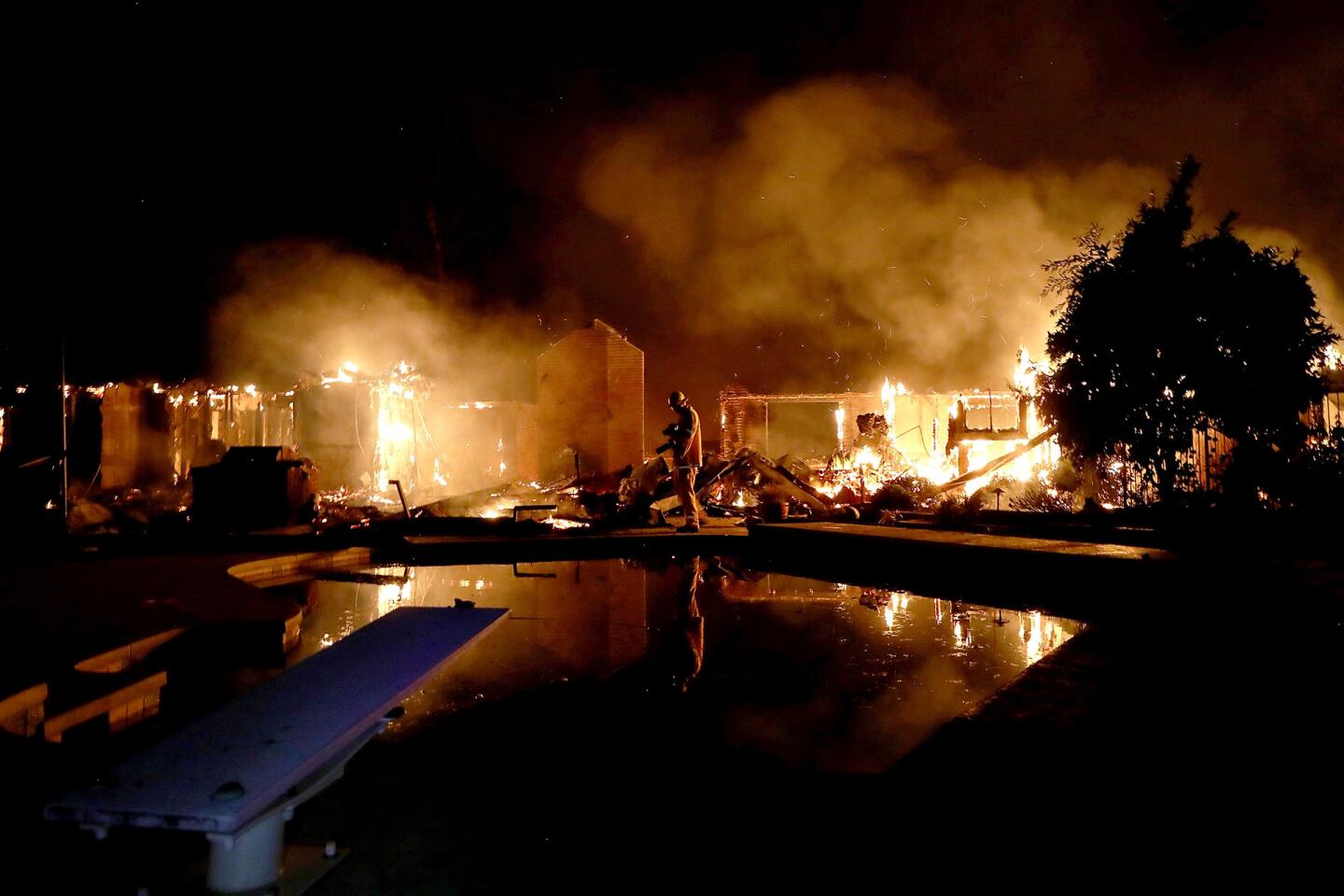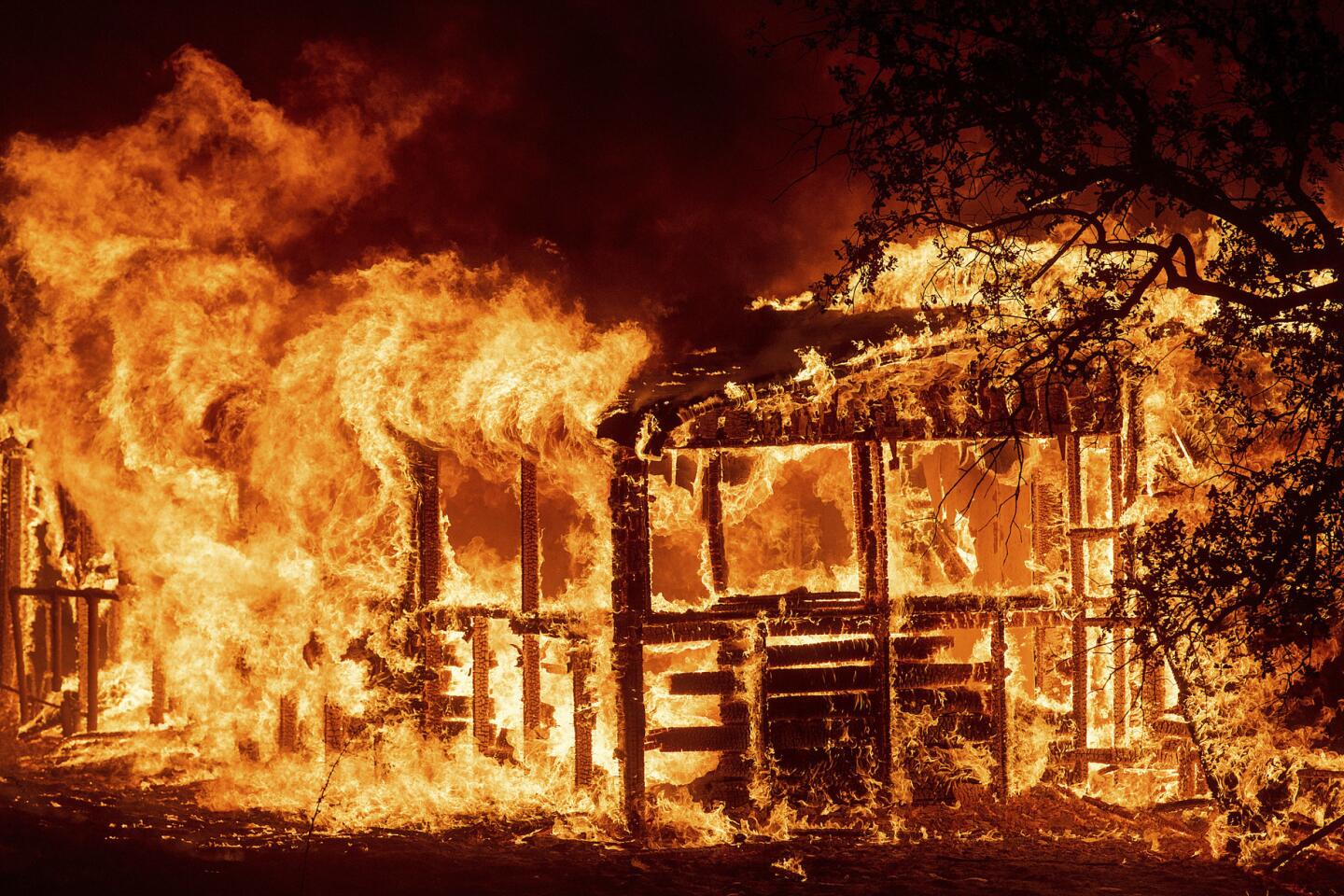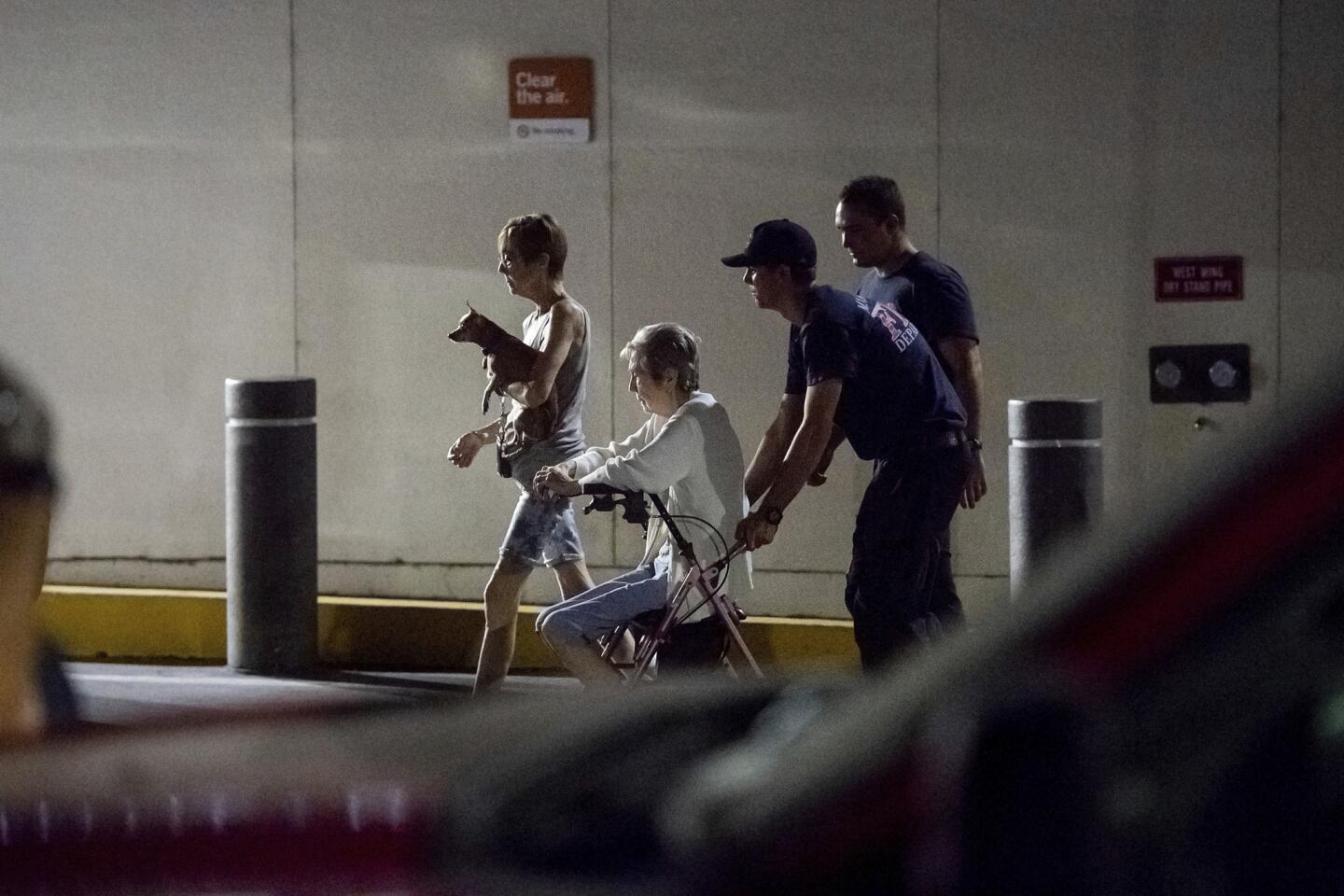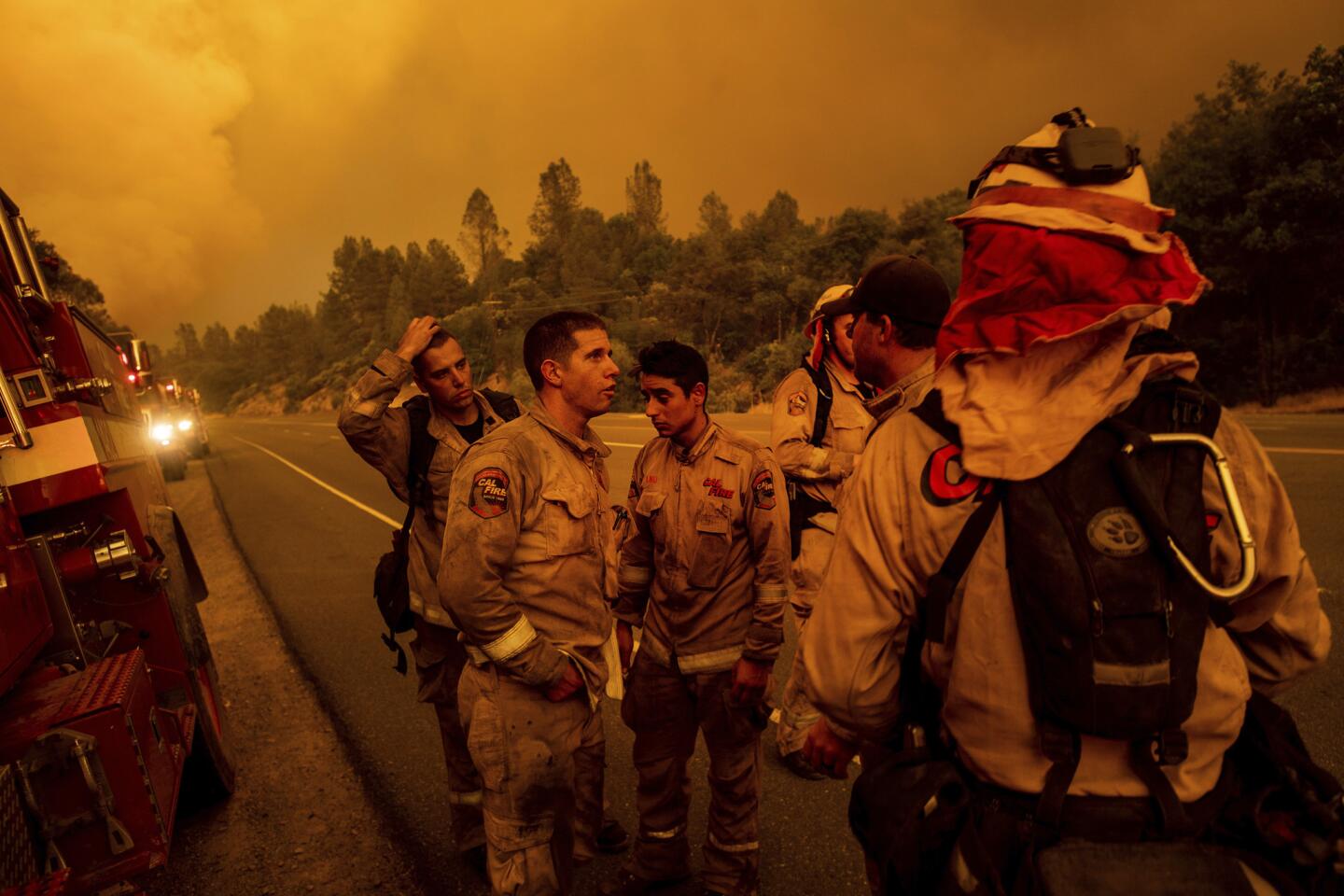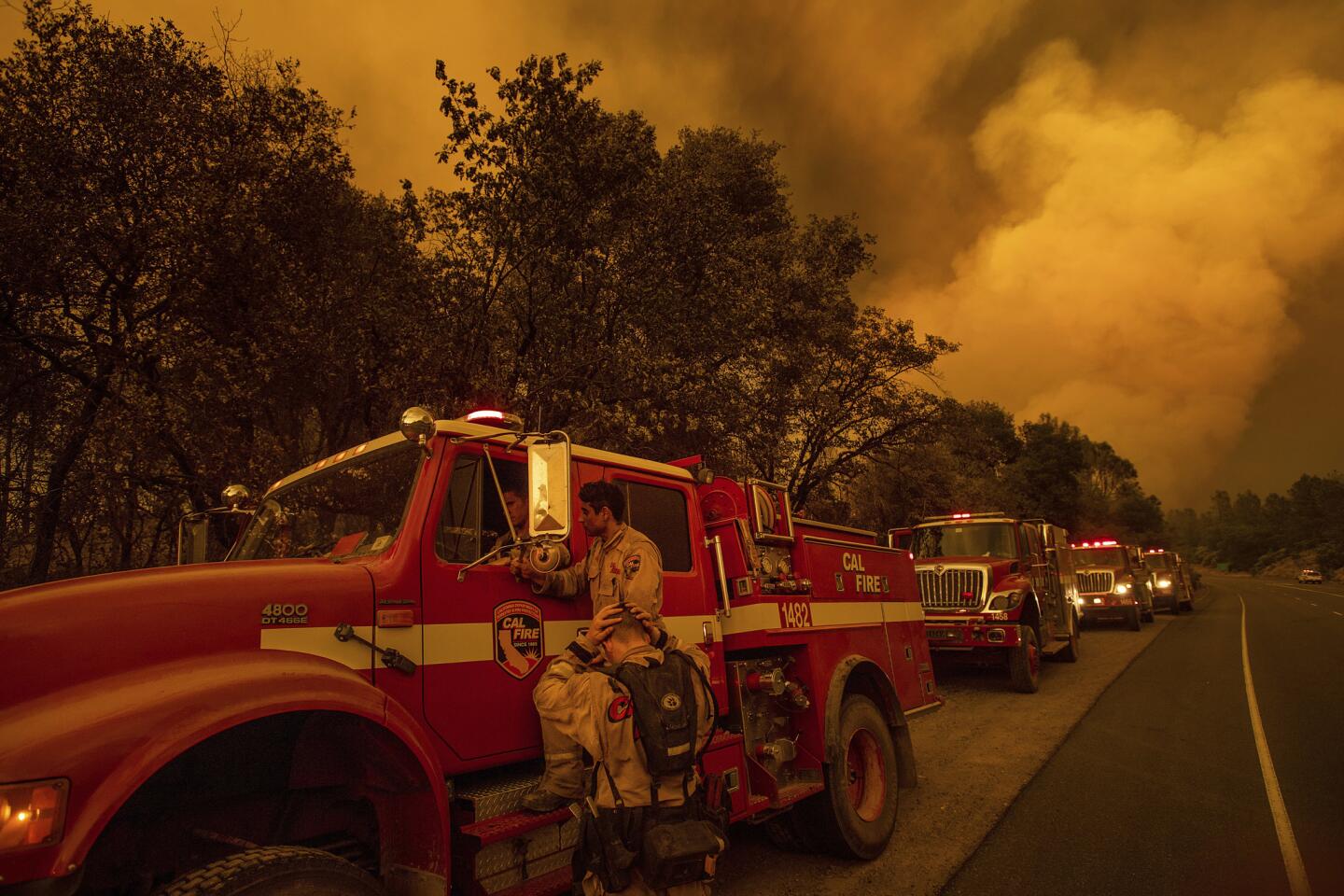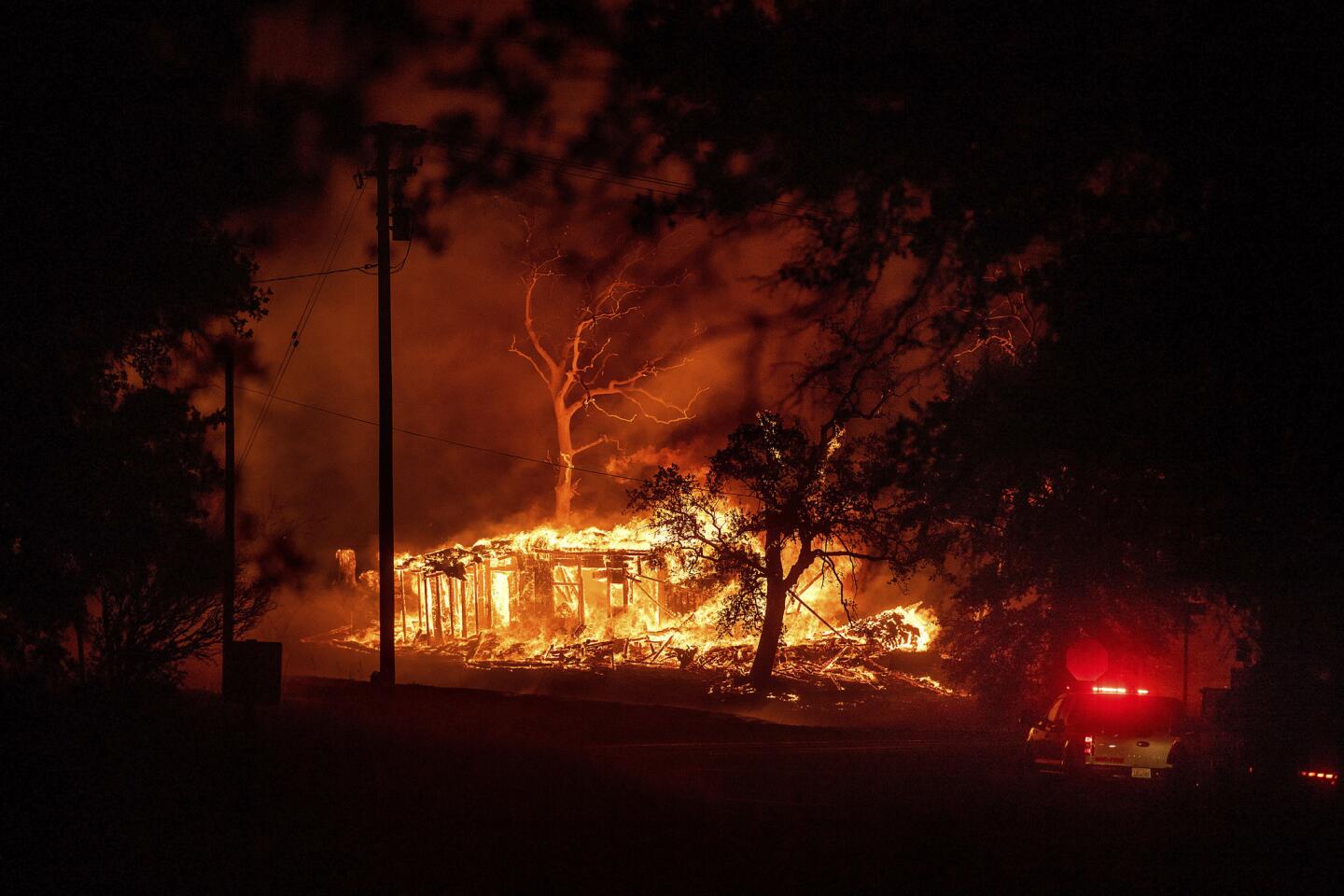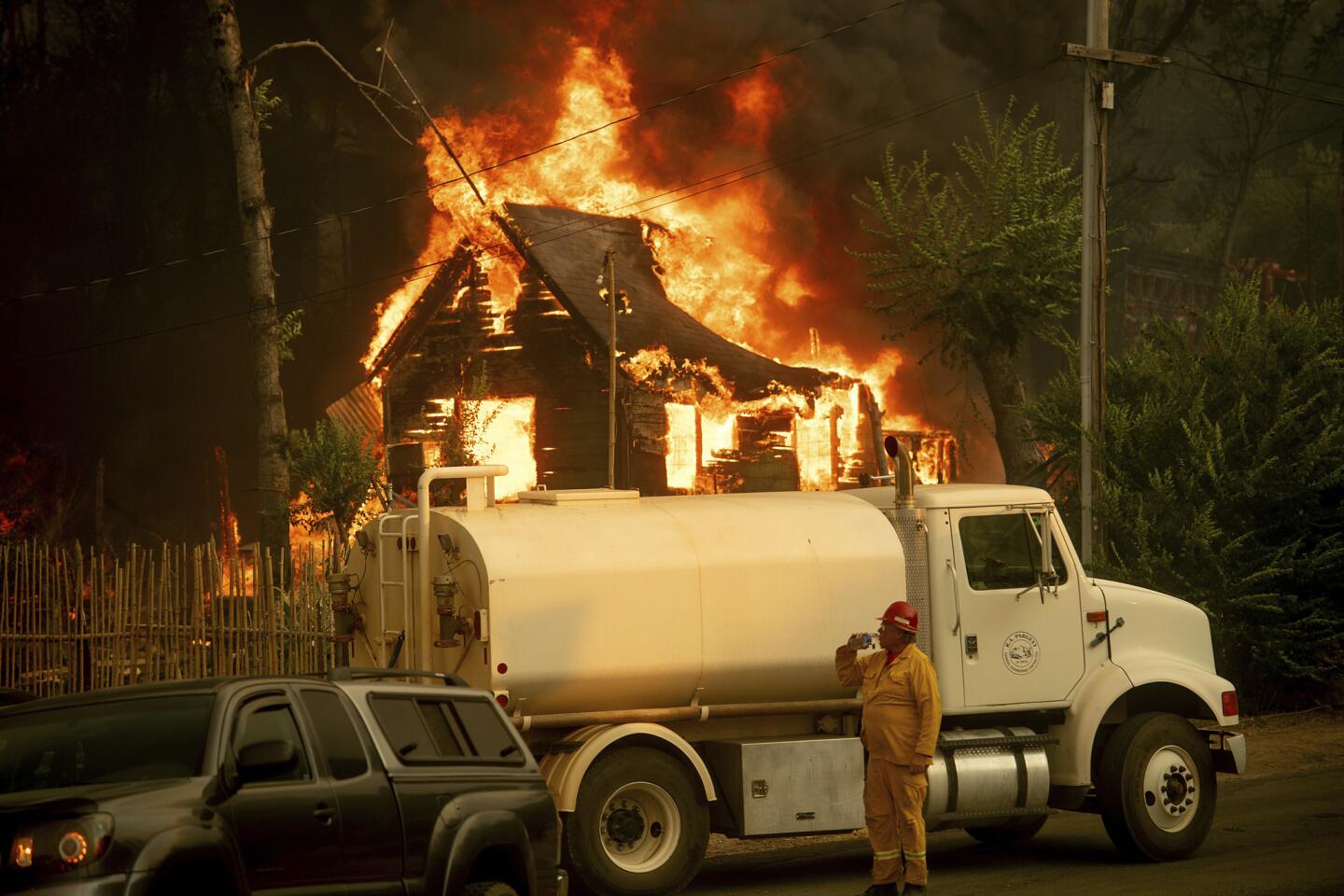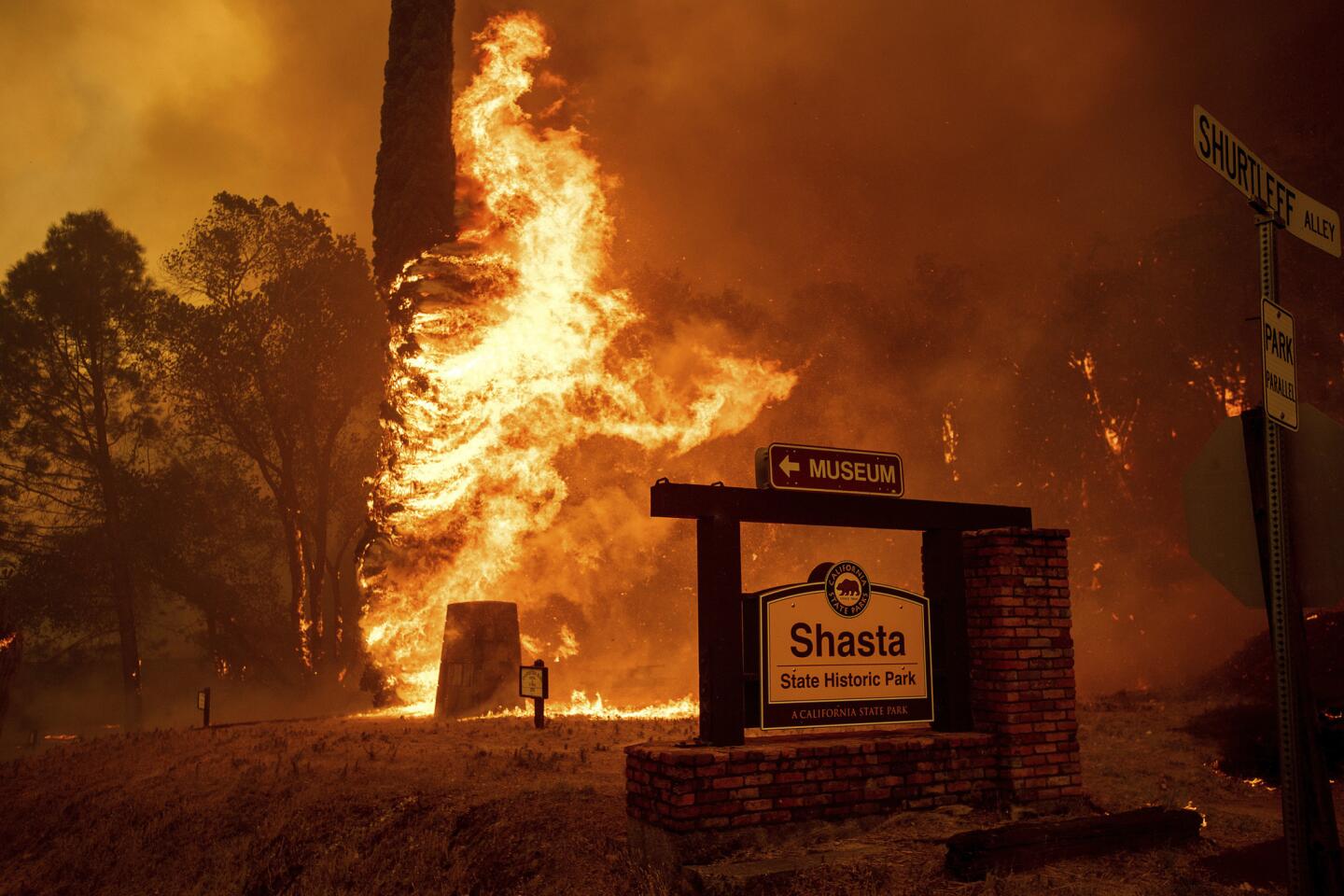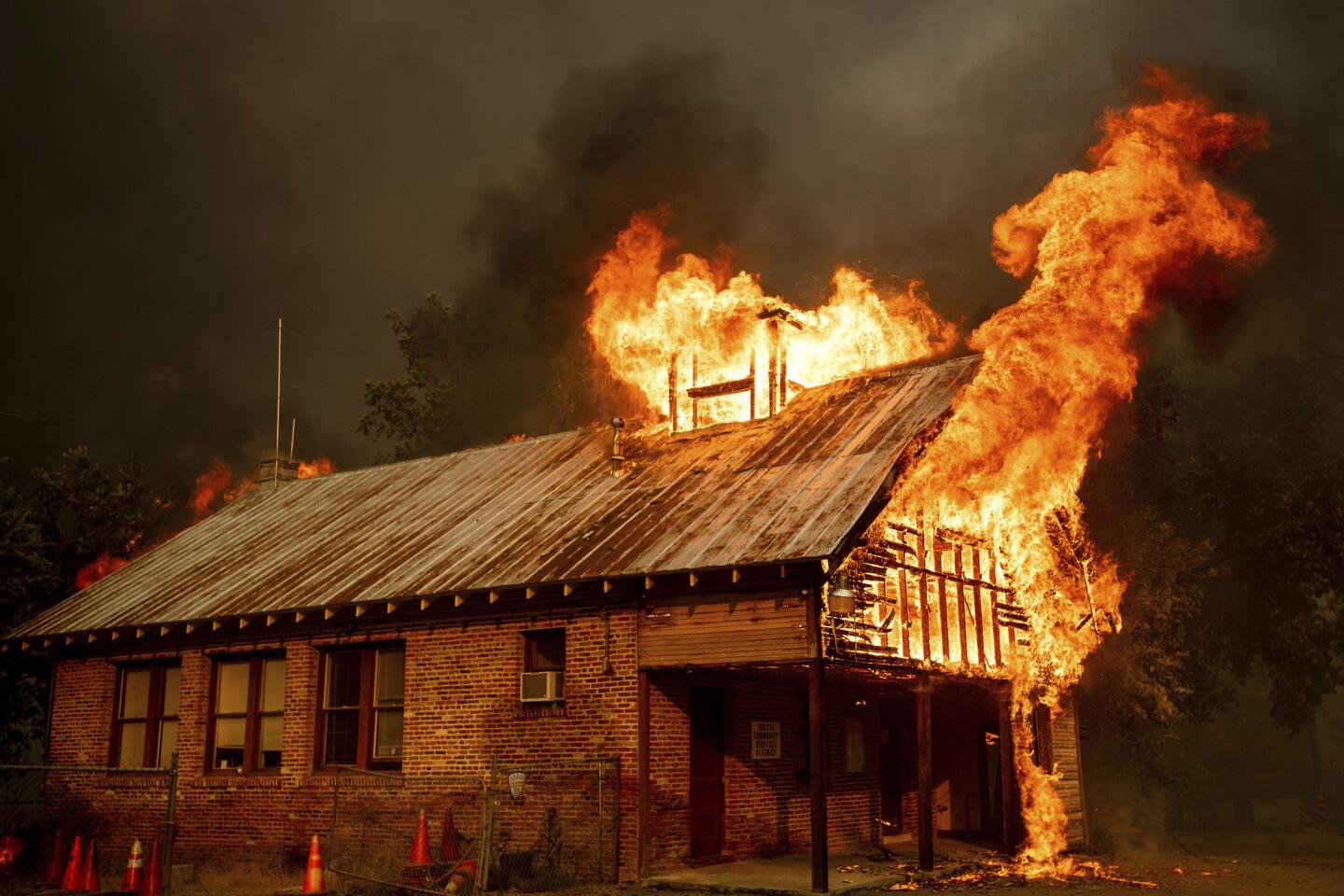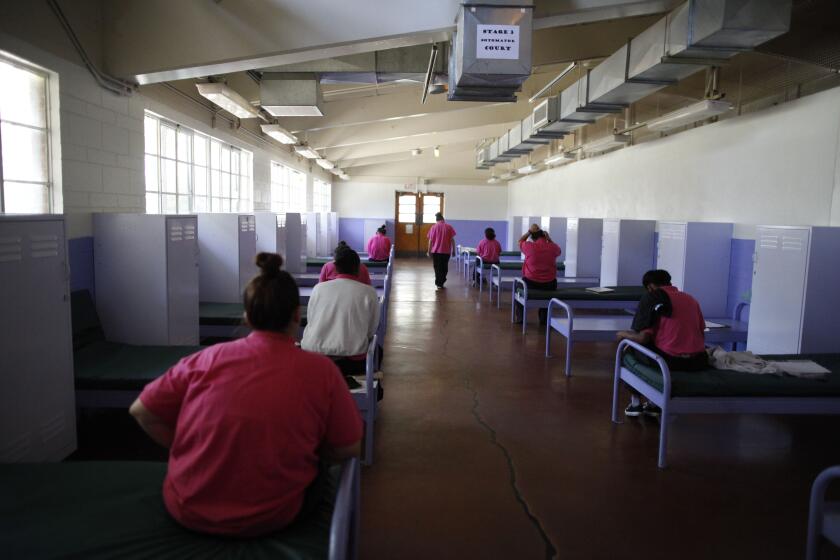500 structures lost in Northern California brush fire that kills 2
- Share via
Reporting from Redding — The fire came out of the dry pines of the Trinity Mountains with such intense heat that it created its own wind pattern.
Evacuating his neighbors in the River Ridge neighborhood, Redding Police Chief Roger Moore saw a towering coil of fire sucking debris in the sky like a tornado.
“It was just destroying everything in its path,” he said. “It was making a sound like a jet engine.”
As the Carr fire raced eastward, driven by fierce wind, it rushed down brushy canyons, up dry-grass ridges, through neighborhoods thick with trees and across the Sacramento River.
By Friday, two people — a firefighter and bulldozer operator — had been killed and 500 structures destroyed, including Moore’s. Officials identified one of the victims as Redding fire inspector Jeremy Stoke.
By nightfall, the Carr fire had burned more than 48,000 acres, with only 5% containment, officials said. About 38,000 people were evacuated in Shasta County.
“This fire was whipped up into a whirlwind of activity,” uprooting trees, moving cars and dislocating parts of roads, said Ken Pimlott, director of the California Department of Forestry and Fire Protection.
Northern California will see high heat and low humidity over the next week to 10 days, he said, which will increase the likelihood of new fires starting and firefighters wearing out as they battle new and existing blazes. The agency has more than 7,000 firefighters working across the state, battling 45 to 50 fires per day, he said.

The Carr fire destroyed an untold number of homes in Shasta County Thursday night.
Firefighters struggle to contain fires when they face steep terrain, hot weather, dry brush and other vegetation that can fuel a fire, said Greg Bertelli, an incident commander at Cal Fire.
“Any one of those factors will make containing a fire extremely difficult,” Bertelli said. “The Carr fire, at times, experienced all three combined. This fire is moving, at times, three or four different directions.”
Three Marin County firefighters were trapped when a stand of pinyon pines lit up.
Holed up in the fire engine as the fire roared through, they suffered minor to moderate burns to their hands, face, ears and nose, said Marin County fire Chief Jason Weber. One was taken to UC Davis Medical Center’s burn center.
Temperatures in Redding were expected to hit 110 degrees Saturday before a slight dip to 105 degrees by Tuesday, meteorologist Chris Hintz said.
The fire continues the most destructive span of fires in California history.
RELATED: Firefighters capture video of ‘fire whirl’ during destructive Shasta County blaze »
In October, the state’s deadliest firestorm hit Northern California’s wine country, killing 44 people. In December, the Thomas fire became the state’s largest fire on record, burning 281,893 acres in Ventura and Santa Barbara counties. Few parts of the state have been unaffected this year.
Yosemite National Park is closed as the Ferguson fire burns well into its second week, taking a firefighter’s life and consuming 45,000 acres. And the Cranston fire has forced the evacuation of thousands of people in and around Idyllwild in the San Jacinto Mountains.
In Redding, the searing summer heat rising from the Sacramento Valley has been pulling coastal air over the mountains, creating a hard westerly wind.
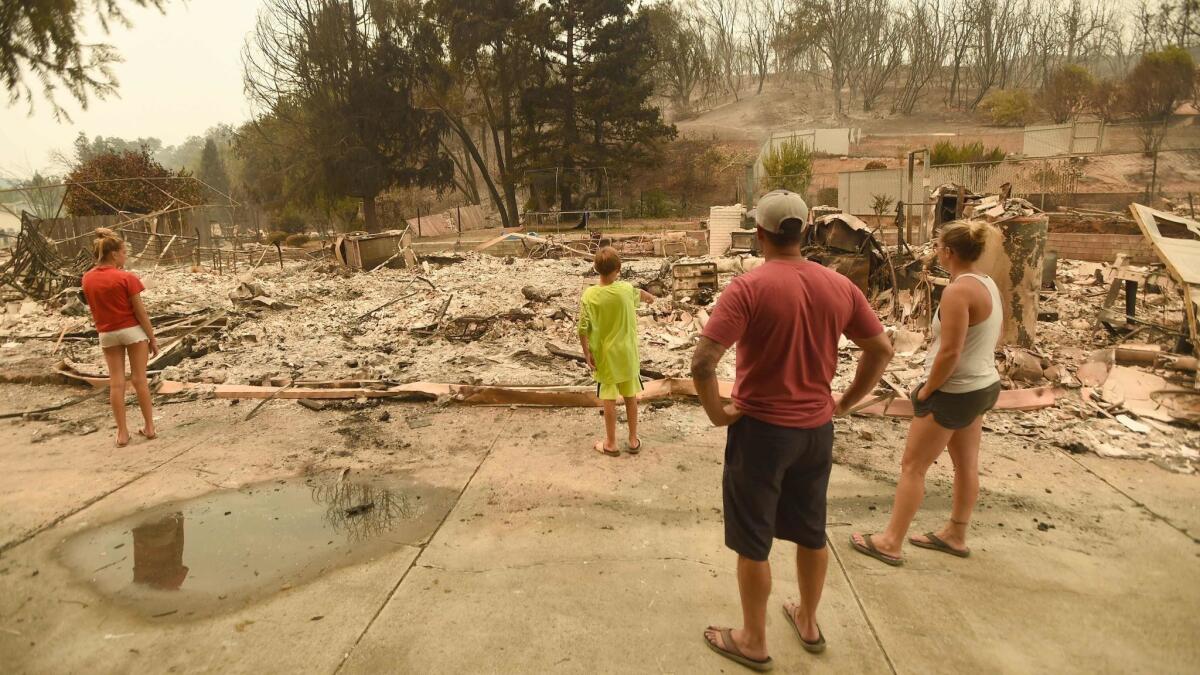
The fire started in the Trinity Mountains on Monday and didn’t cause much alarm until Wednesday night, when dry wind drove it to Whiskeytown Lake, burning boats in a marina.
The next night it was poised to run into the west edge of Redding, a city of 90,000 just south of Shasta Lake.
Erica Bade and her family didn’t think they were in danger as they sat at the dinner table after watching the news. The fire was on the other side of the Sacramento River, about a mile away.
Then the power went out, an eerie sign the fire was coming.
Erica, a 17-year-old incoming freshman at UC Santa Barbara, started grabbing whatever clothes she saw and shoving them in a suitcase. She looked out the window.
“I see flames, there’s fire!” she screamed.
She loaded the car in a cloud of smoke as ash drifted down.
Police officers shouted at residents to leave immediately.
Frantically, Erica and her family kept packing, making sure to take important documents, laptops and the family computer that stored many childhood photographs. Finally, an officer walked into their home through the garage and told them they had to go.
The Bade family drove away in tears, watching their rear-view mirrors as the flames reared up behind their home.
Erica figured it would be the last time she saw it standing. “It was just huge flames,” she said. “It did not look good at all.”
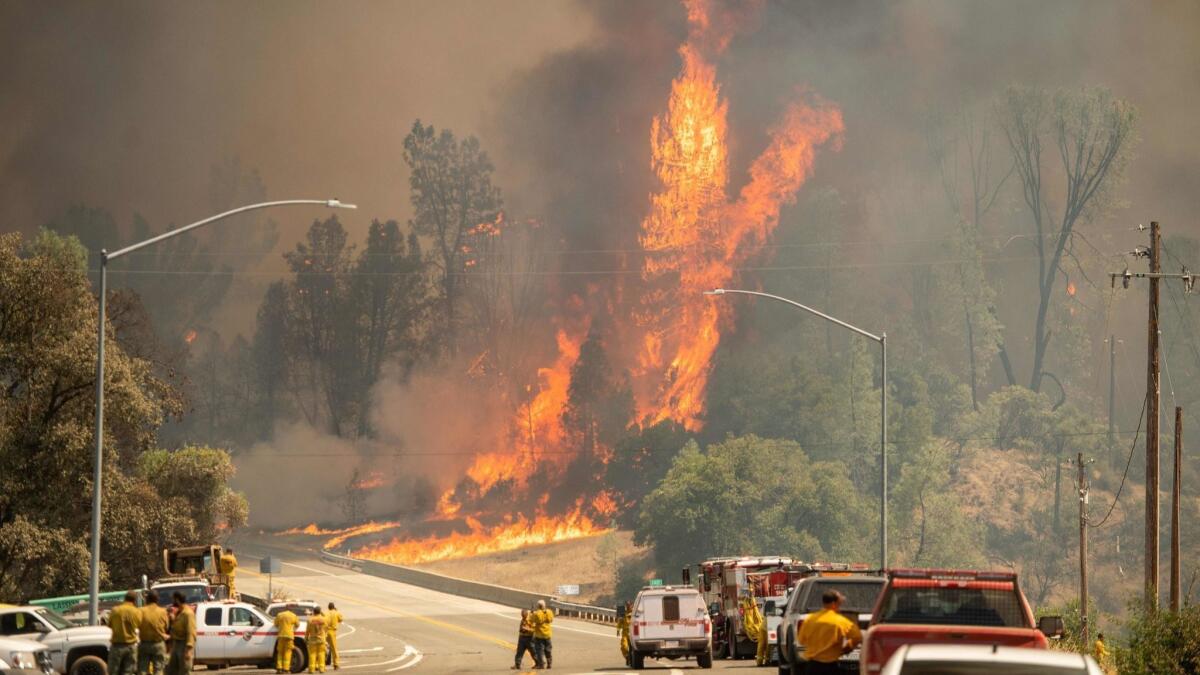
Just a few hours later, a Redding detective and family friend sent a photograph and called the family to deliver the news — save for a front porch pillar, the home was gone.
“We don’t really know what we’re going to do,” Erica said Friday. “We’re just trying to get through the day. It’s surreal to us all. We’re just going through the day, taking it as it comes.”
After evacuating the night before, Ron Mhoon, 44, went back to the neighborhood Friday to check on the home he bought five months ago.
He called his son on FaceTime and showed him what was left: a gas main, still burning, and the tiled shower stall from the master bathroom. Mhoon tried to comprehend why the fire had destroyed his home and his neighbor’s but left the homes just next door untouched.
In the River Ridge Park subdivision, Austin Bramson, 16, had spent months working with his father in the garage to restore a 1965 Chevrolet Nova. The classic car was almost finished, ready for the coat of paint to make it look new. They had to leave it behind in the garage as they evacuated.
“All that work — gone,” Austin said, almost in tears, as he looked over the shell of his home.
Like many in a fire country, Rick Plummer, director of marketing for Dignity Health’s Mercy Medical Center, had imagined evacuating so many times before but couldn’t believe how hard it was.
“I don’t think you can 100% appreciate walking through your home and deciding what to take and what not to take,” Plummer said, his voice cracking with emotion.
He drove to work, where he watched doctors, nurses and hospital administrators work through the night even as they got word their own homes had burned.
The fire was still moving through other parts of the city on Friday. In southwest Redding, a spot fire broke in the hills above Cedars Road. Residents watched nervously as they packed in the 101-degree heat. Helicopters thrummed as a voice from the loudspeaker of a police cruiser told residents to get out.
“I just kept watching things,” said Crystal Harper, who stood in her driveway with the car packed. “And it’s time.”
“This is the worst I’ve ever seen,” said Steve Rice, who has lived here for 55 years.
Rice watched as a young man kept driving and stopping — unsure of how to proceed.
“There’s all kinds of people walking around that shouldn’t even be here,” said Rice, who had left garden hoses watering down his RV camper alongside his house.
A nearby resident could be heard yelling at a neighbor, wondering why he hadn’t made preparations to leave.
Rice had family members sitting in a nearby vehicle ready to caravan away with him. He didn’t have time to get all he wanted from his home.
But he left one item intentionally — an American flag flying on a pole by his front door, a plea of sorts to firefighters.
“Hopefully they’ll see that and protect it,” he said.
Myers and Willon reported from Redding, and Mozingo and Serna from Los Angeles. Times staff writers Laura J. Nelson and Alejandra Reyes-Velarde in Los Angeles contributed to this report.
UPDATES:
8:20 p.m.: This article was updated with an increase in the size of the fire, as well as structures destroyed.
This article was originally published at 4:50 p.m.
More to Read
Sign up for Essential California
The most important California stories and recommendations in your inbox every morning.
You may occasionally receive promotional content from the Los Angeles Times.
